In 1994, a year when everything changed in South Africa, a New York and Lesotho bred gentleman decided to transform the world through the field of architecture. Mokena Makeka believes in the power of design in order to better people’s lives. His guiding philosophy embraces the notion that everyone has the right to experience good design. Enriching people through architectural environmentally sustainable projects, his name has become synonymous with innovative design, specifically for his recent rebuild of the Cape Town main station.Born in South Africa Mokena spent much of his youth in New York while his father held a post as an advocate for the United Nations. Living in America gave him a different perspective. He experienced life in a relatively wealthy country and was taught what it was like to be different. Re-orienting and understanding his heritage was a large contributor to his own personal development. He compares rediscovering his roots on his return to South Africa ‘almost like being a butterfly’ whereby his identity underwent a metamorphoses of sorts.Mokena writes, teaches, sits on several boards and manages his own design and architectural practice. He calls himself a nerd. He is a thinker, a motivator, a doer. He is a man that has experienced Apartheid and freedom, and knows that fixing is a difficult thing but reinvention is possible. We met up with him, in the bustling city centre of Cape Town at his office in St. Georges mall, to talk about the similarities between architecture, science fiction and music, his strong connections to his roots and youthful aspirations of becoming an astronaut.
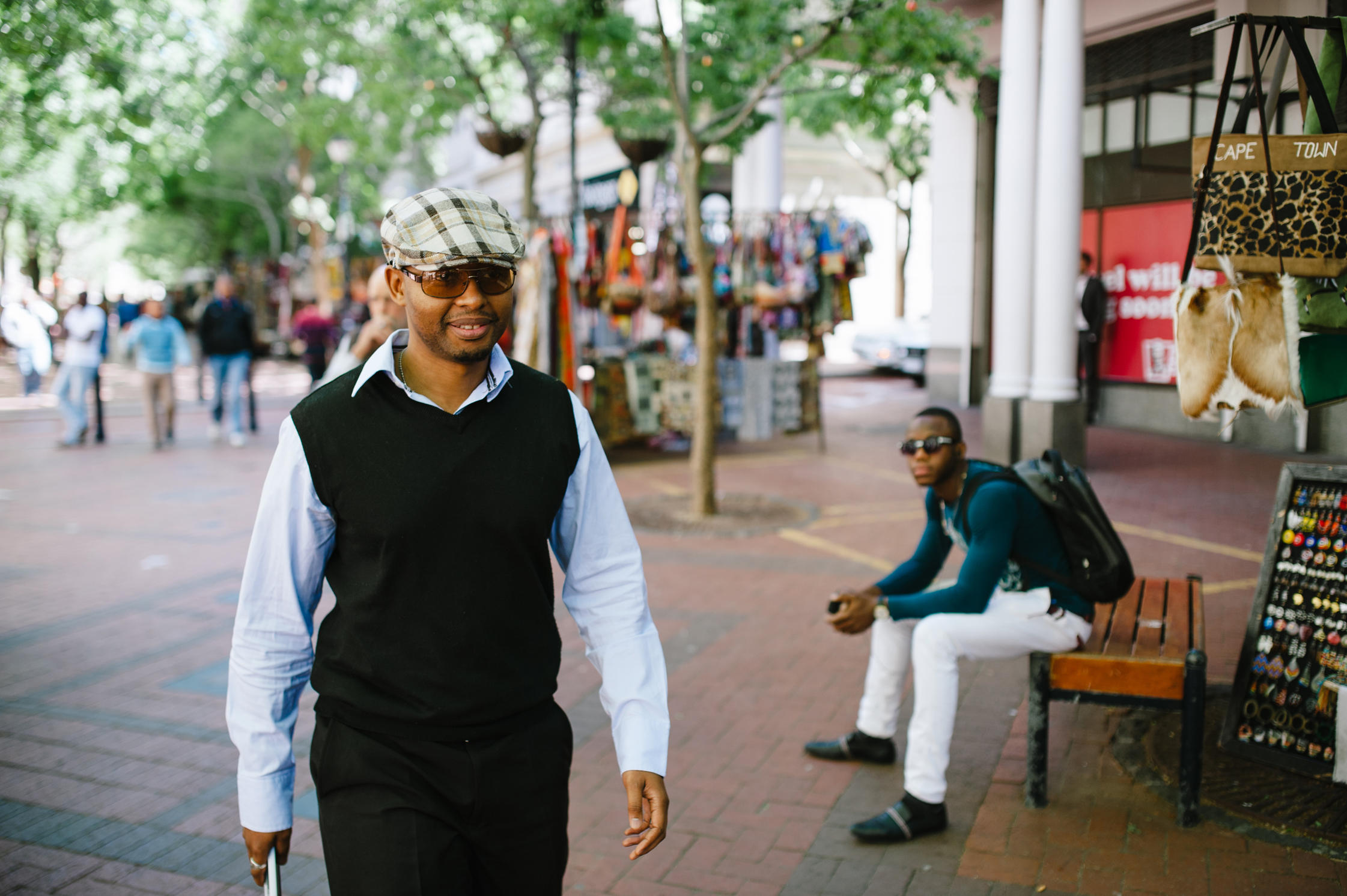
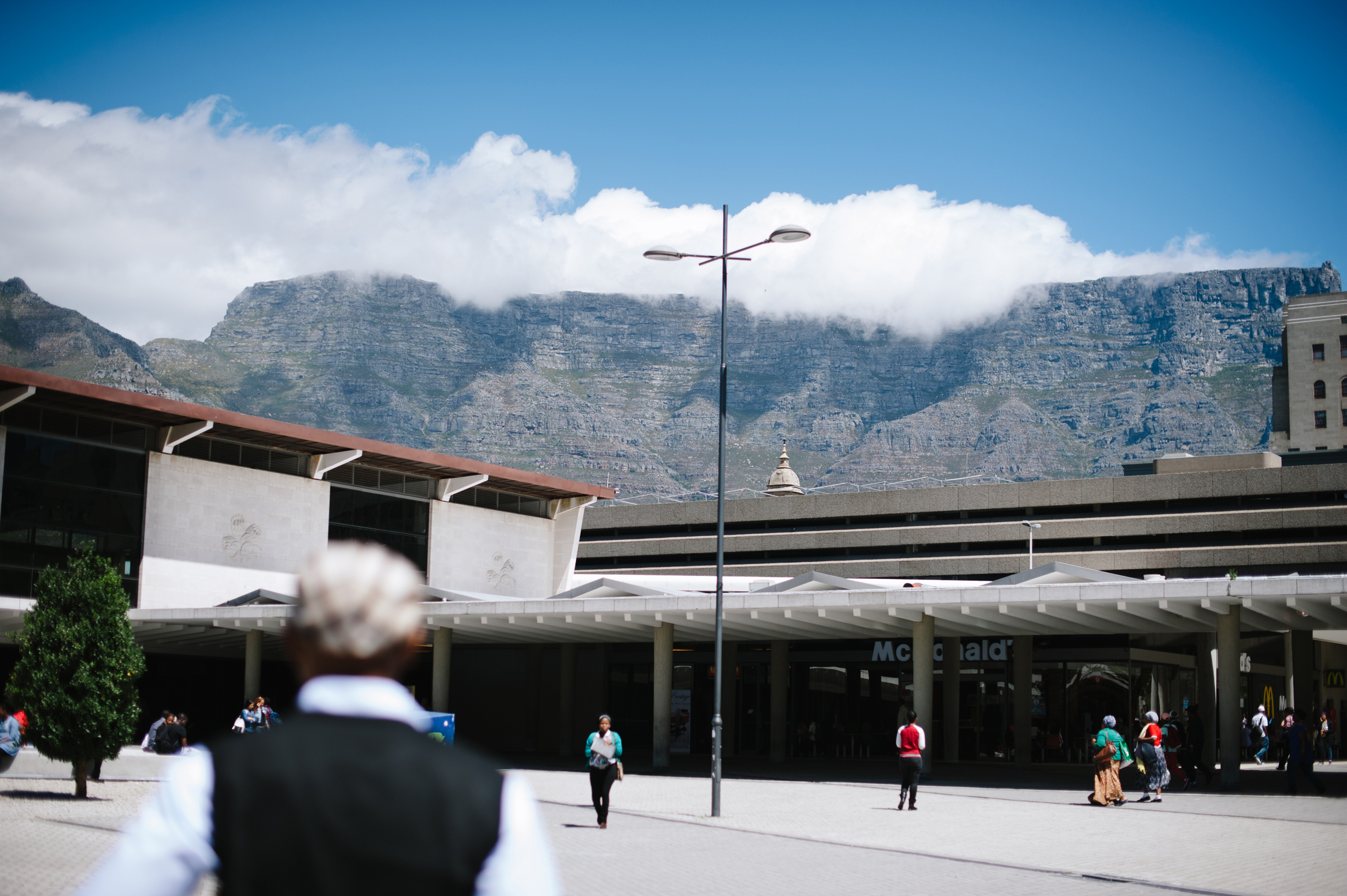
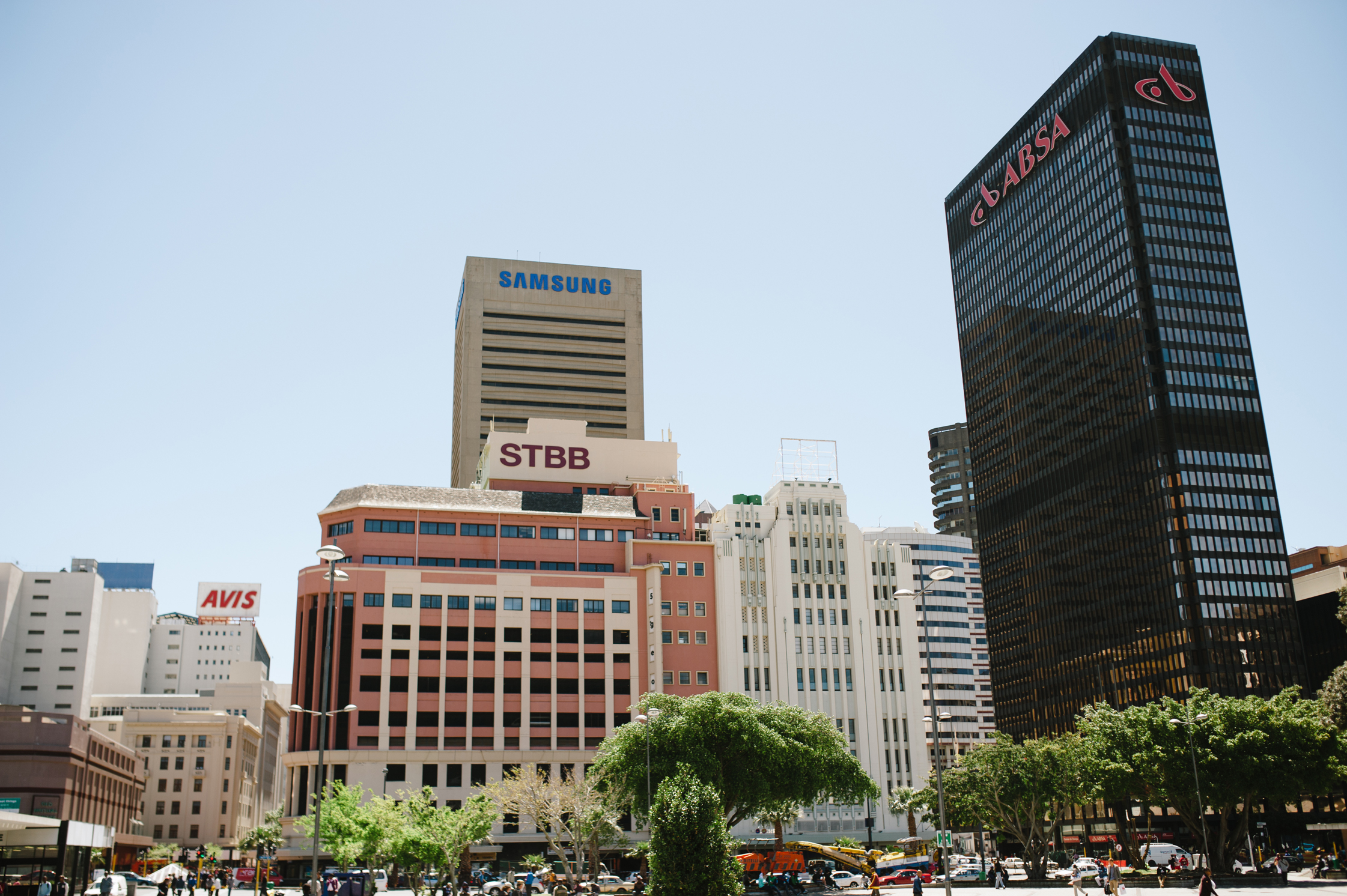
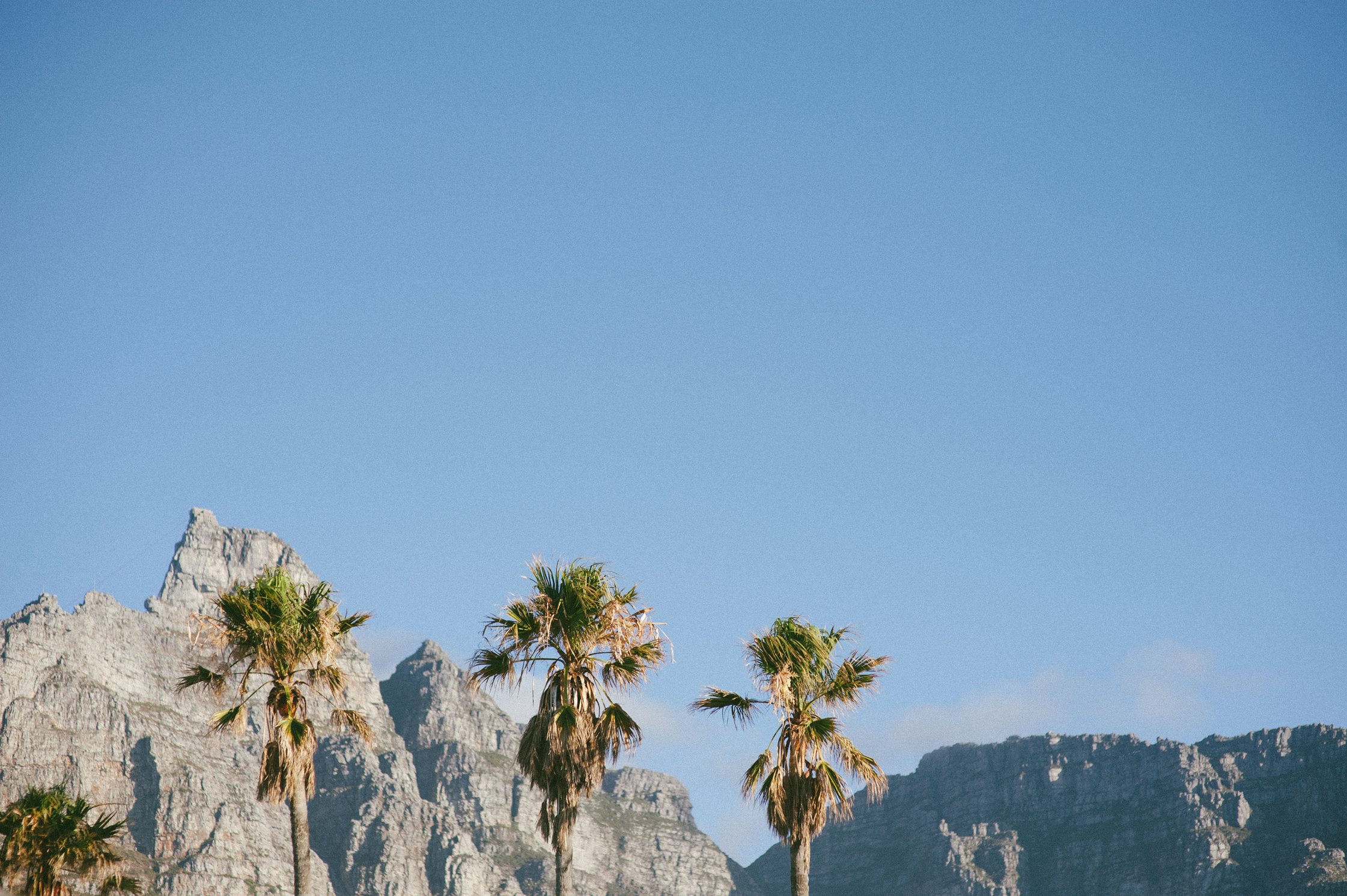
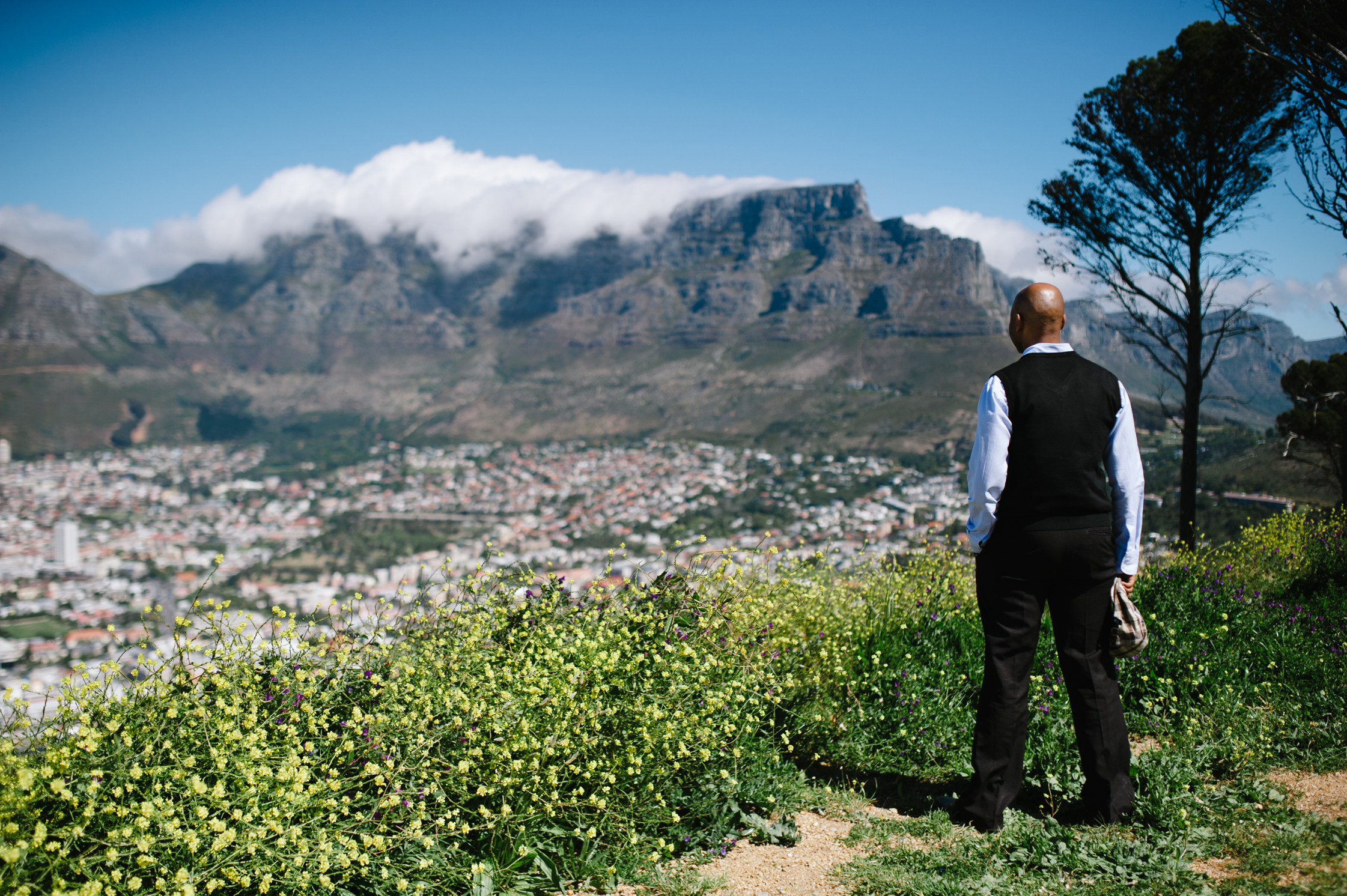
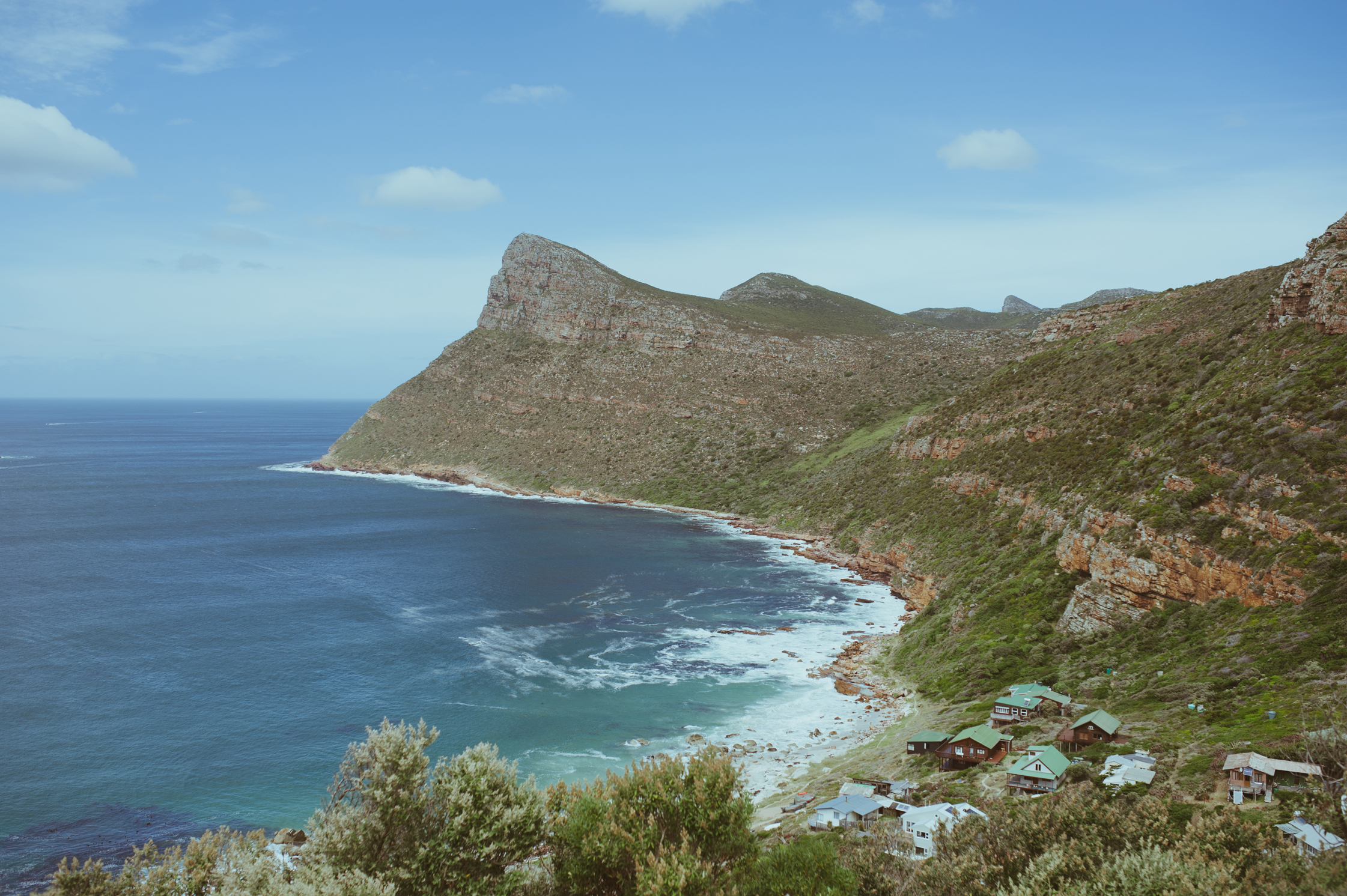
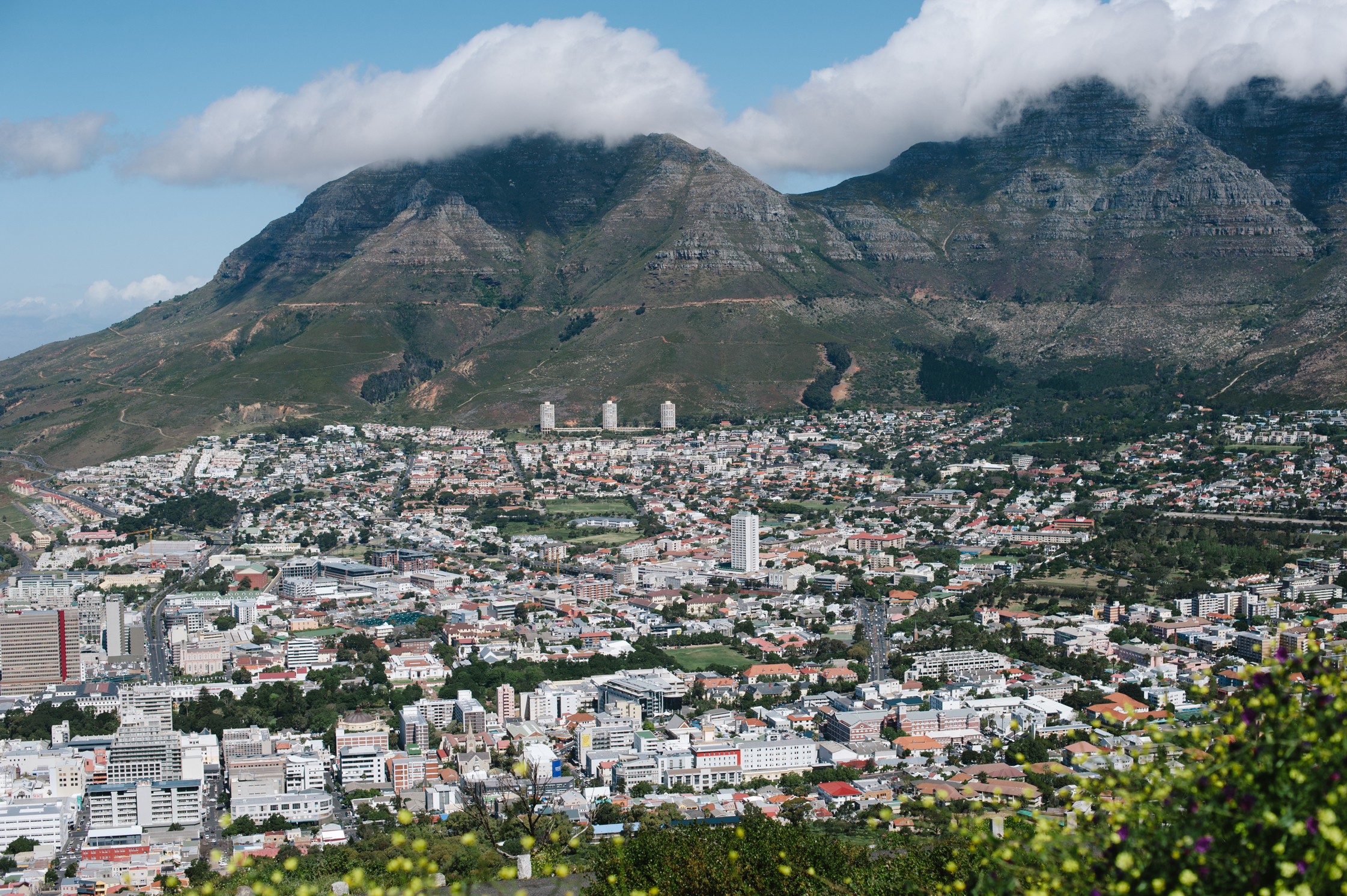
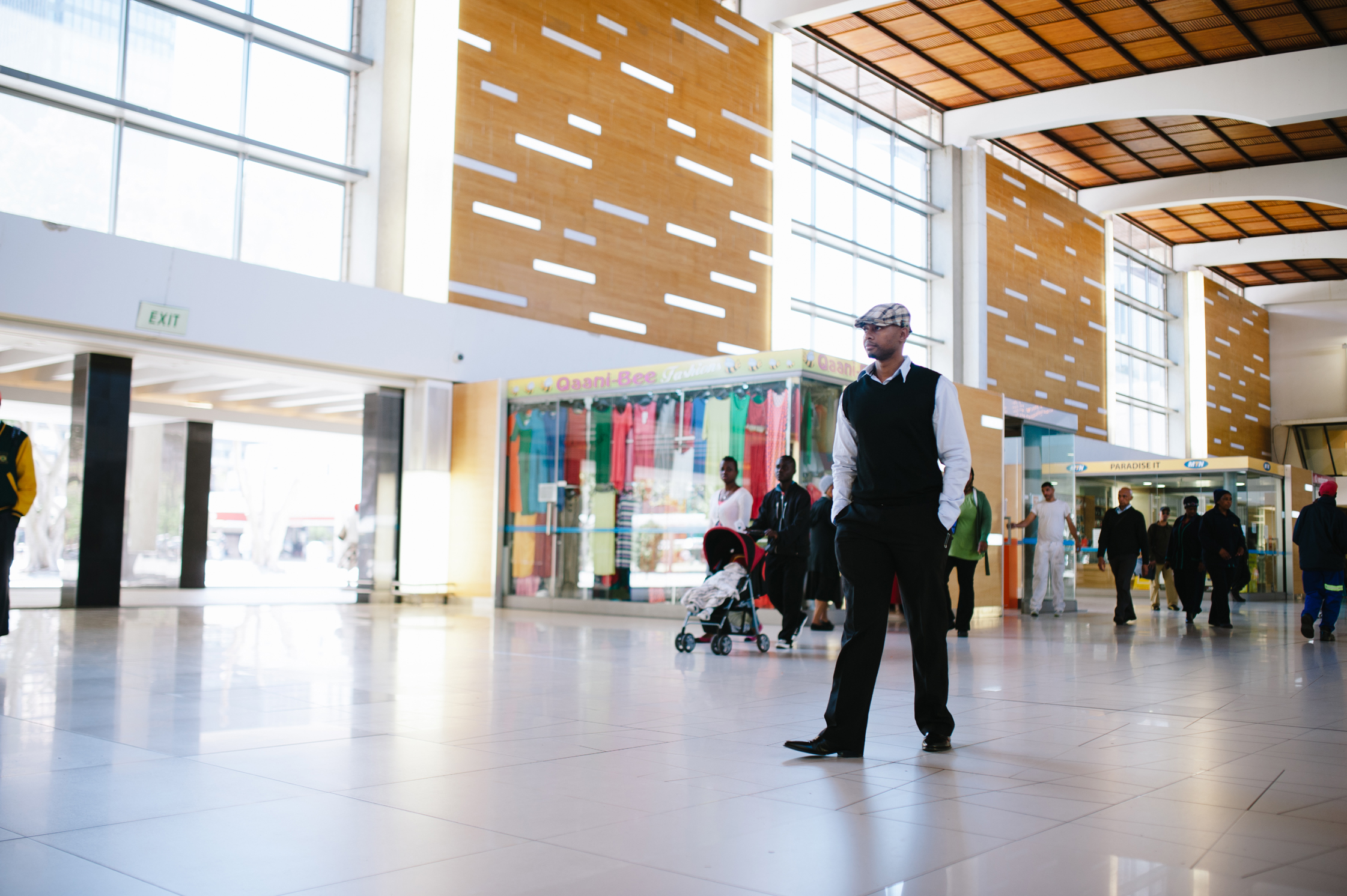
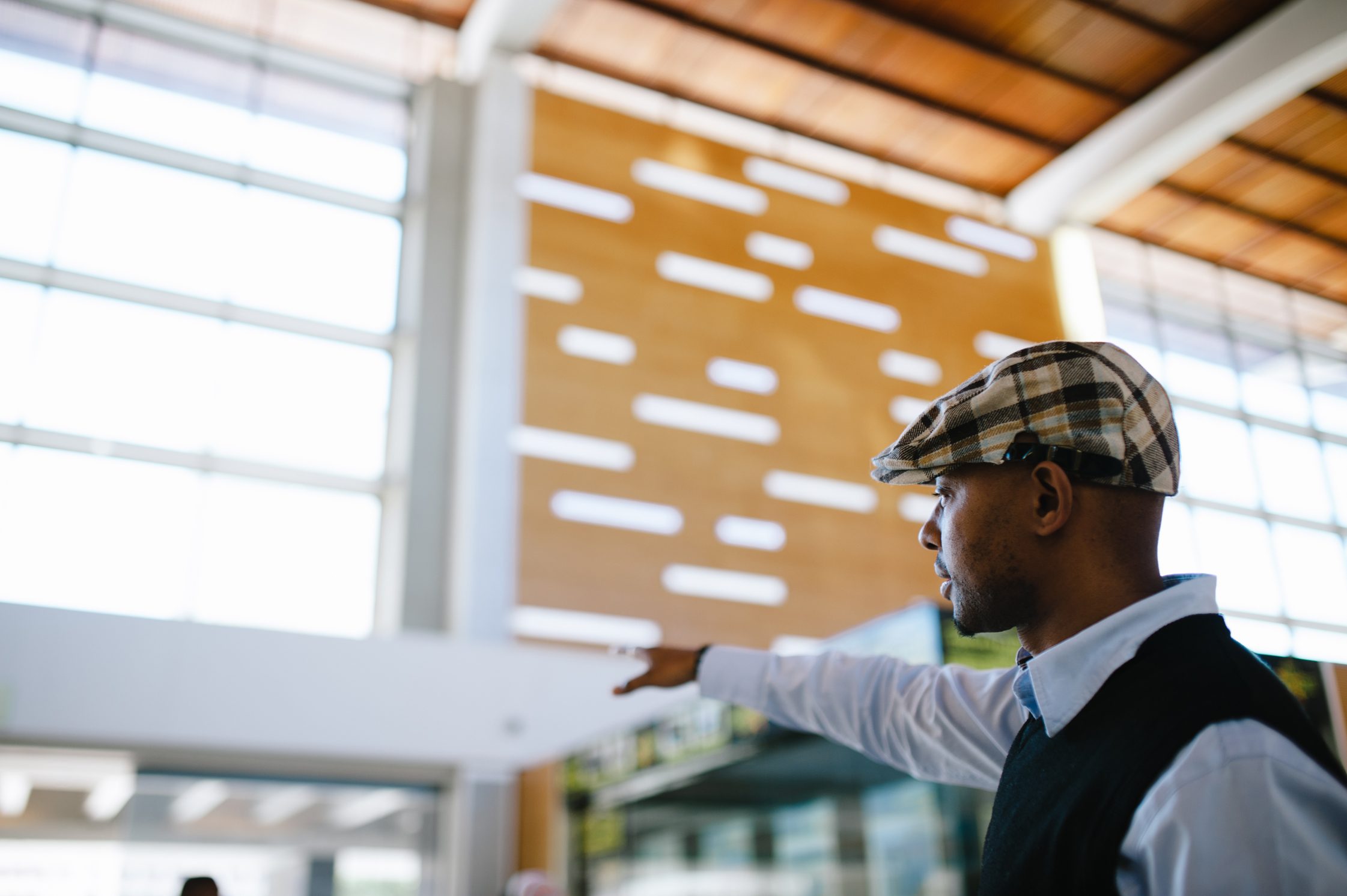
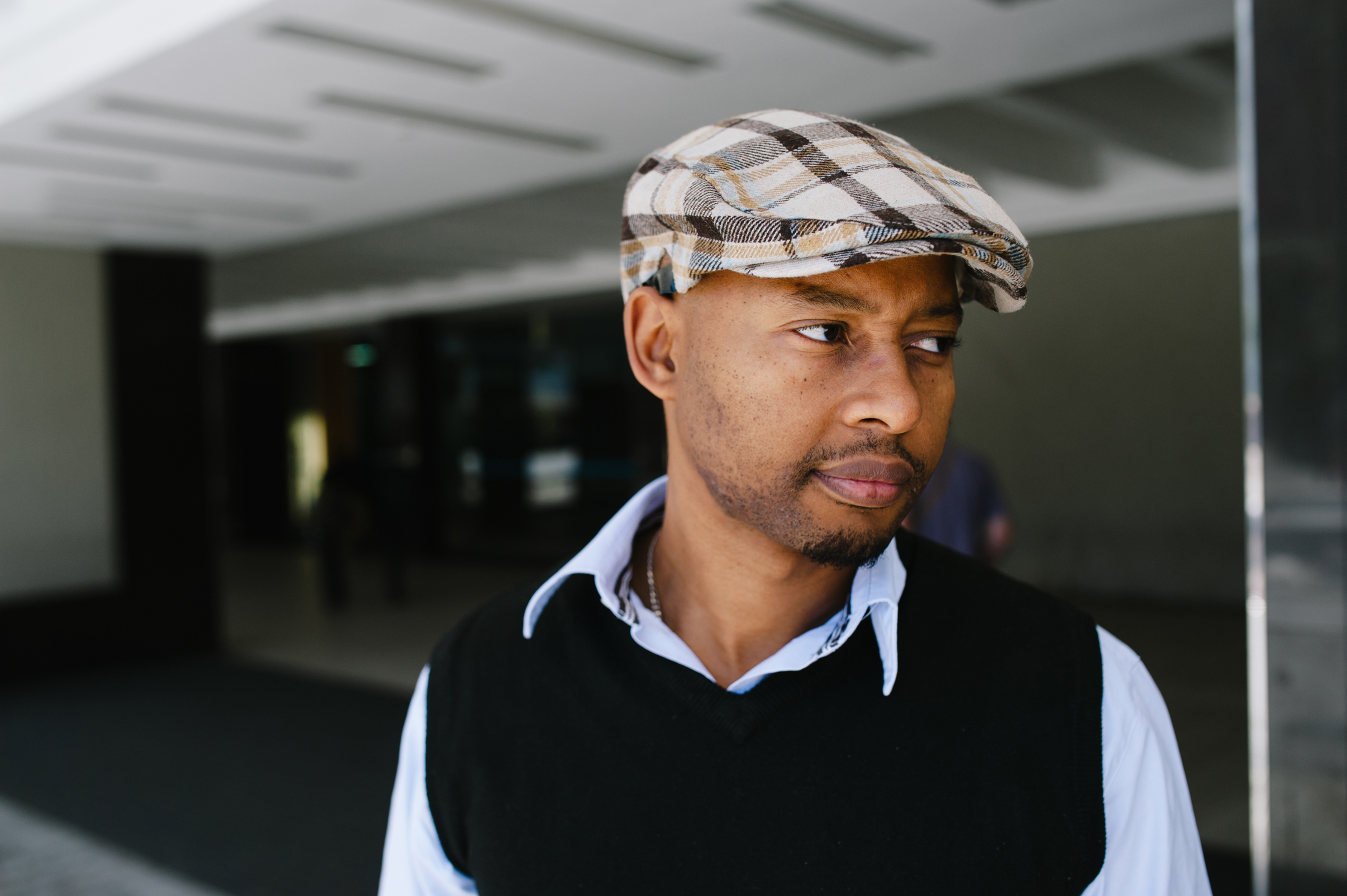
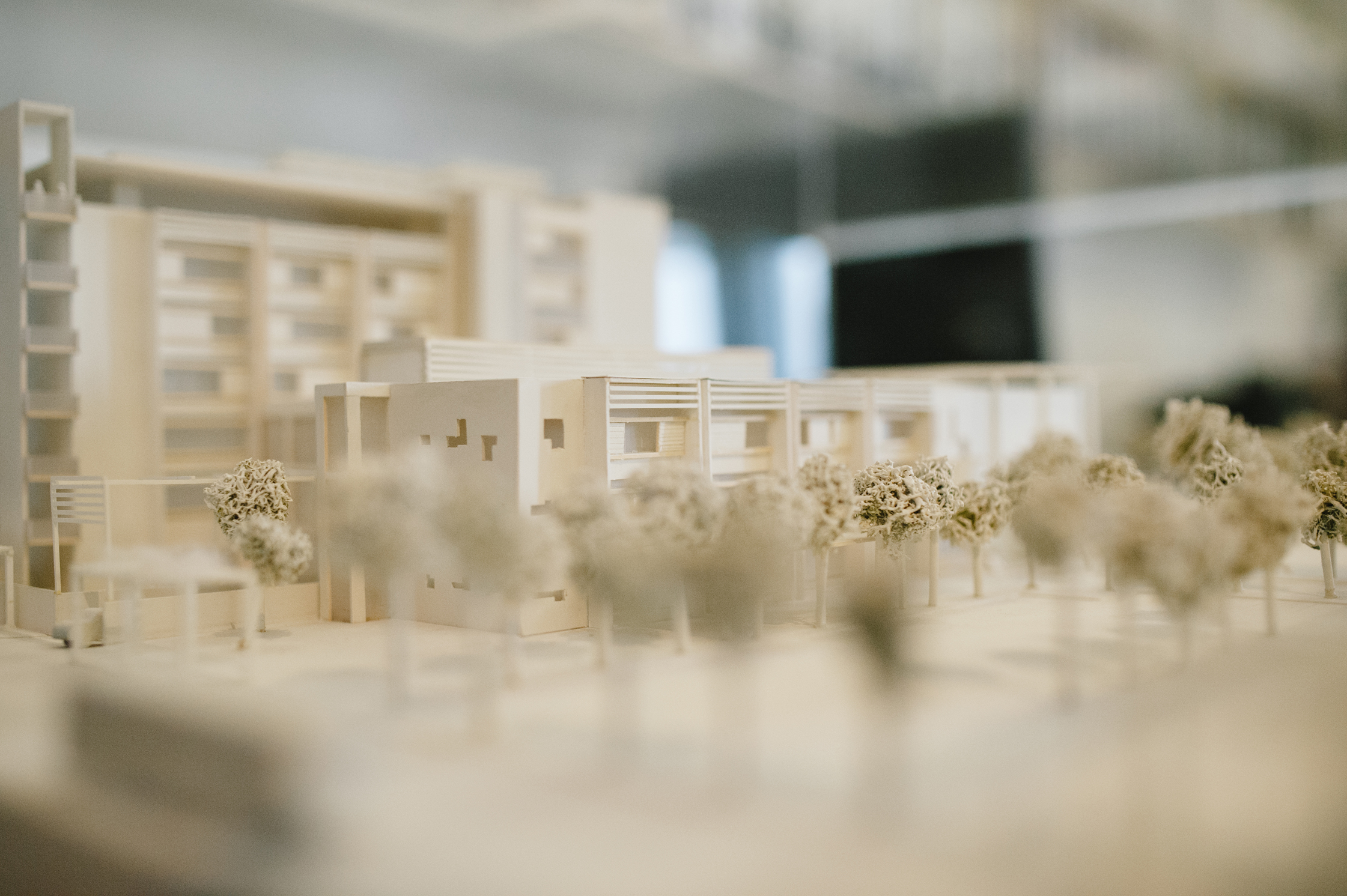

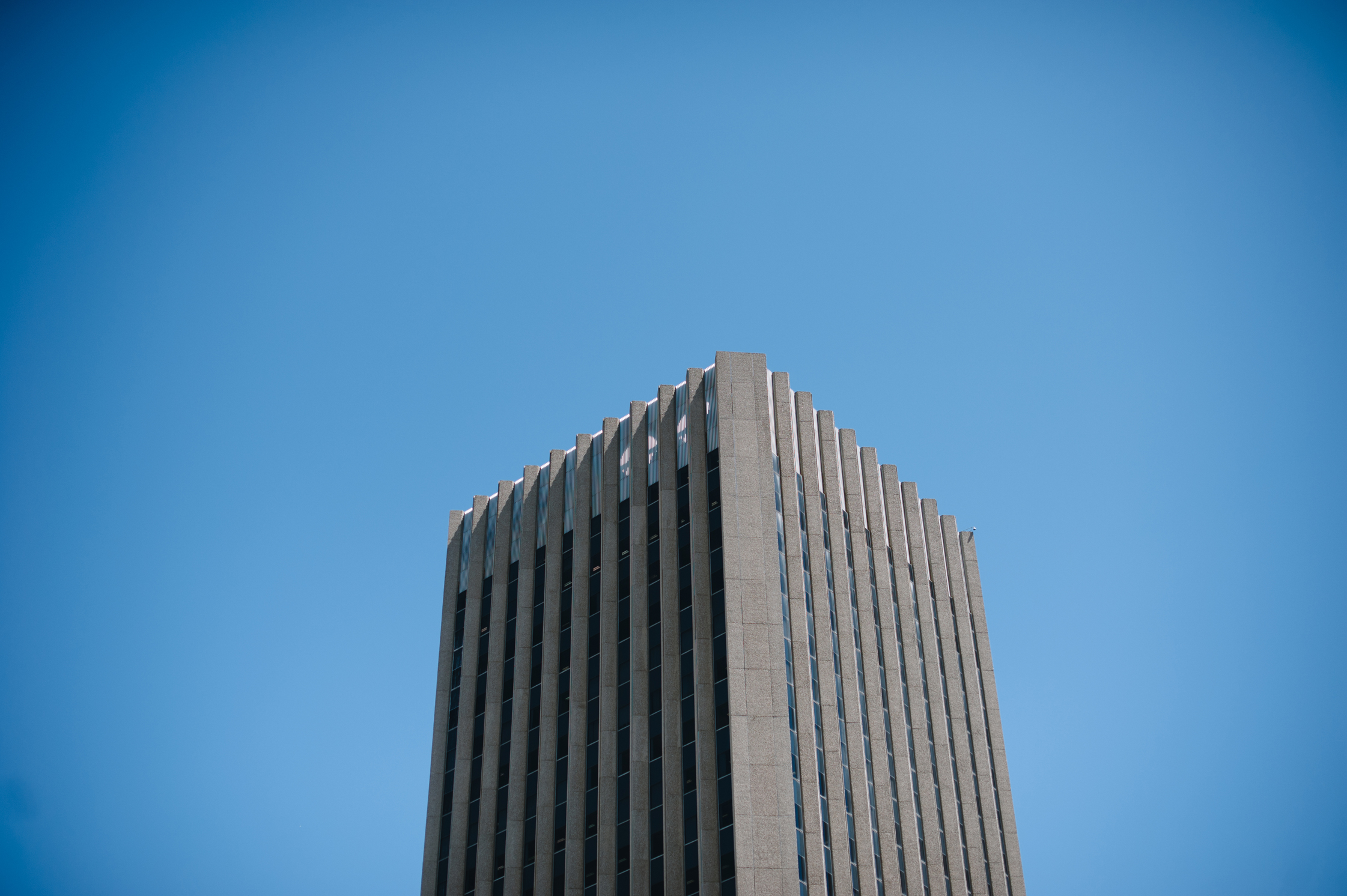
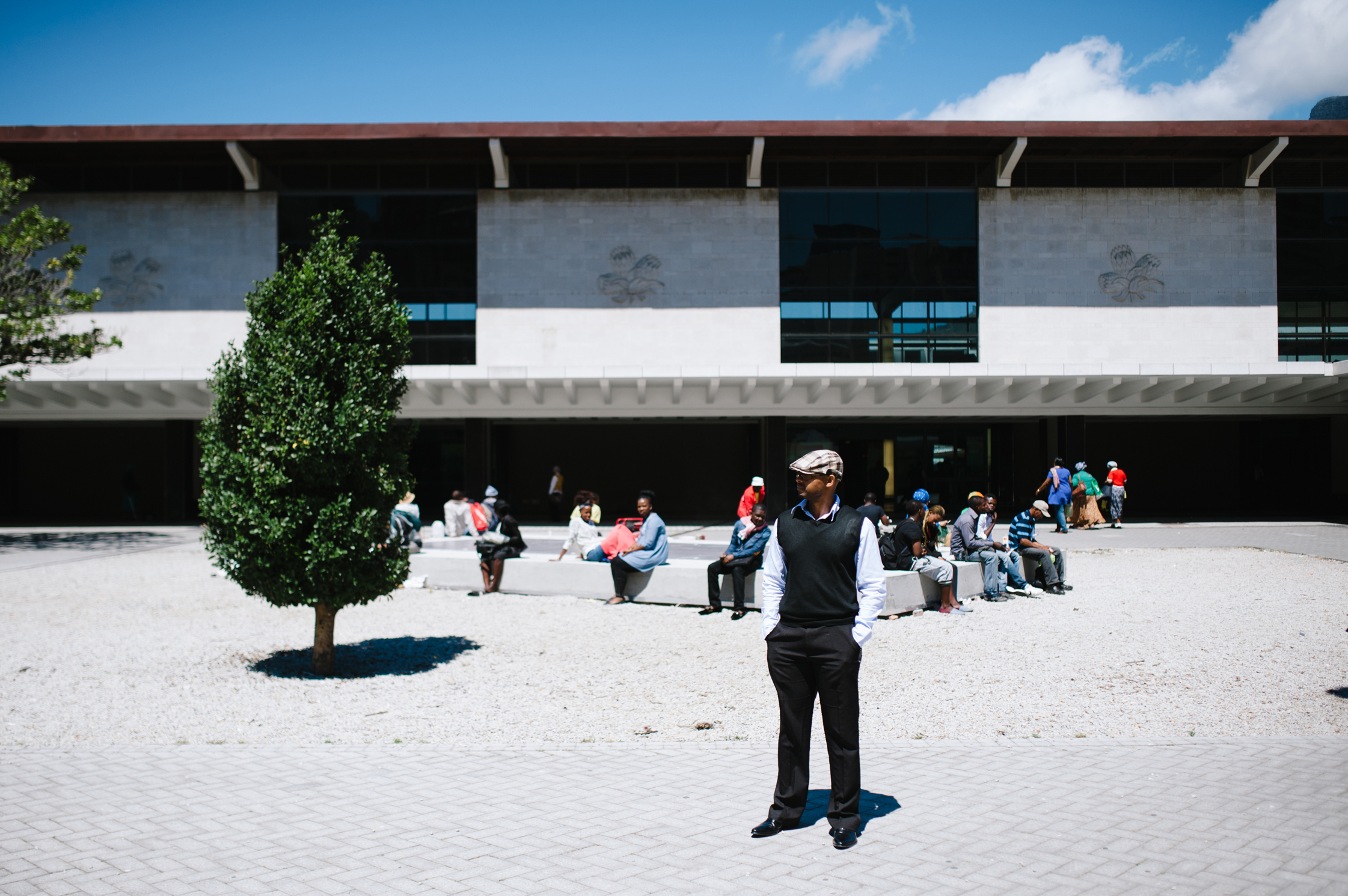
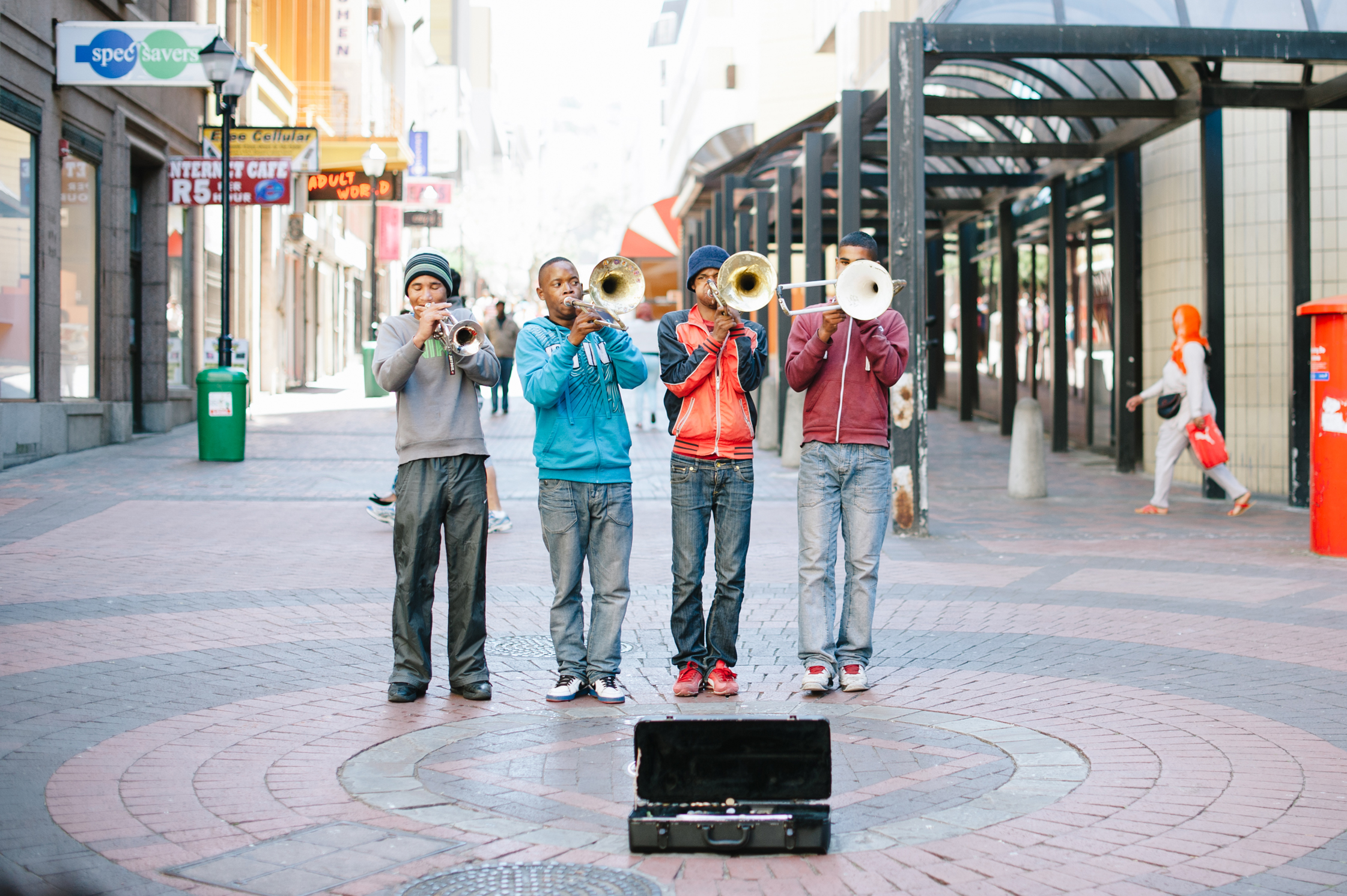
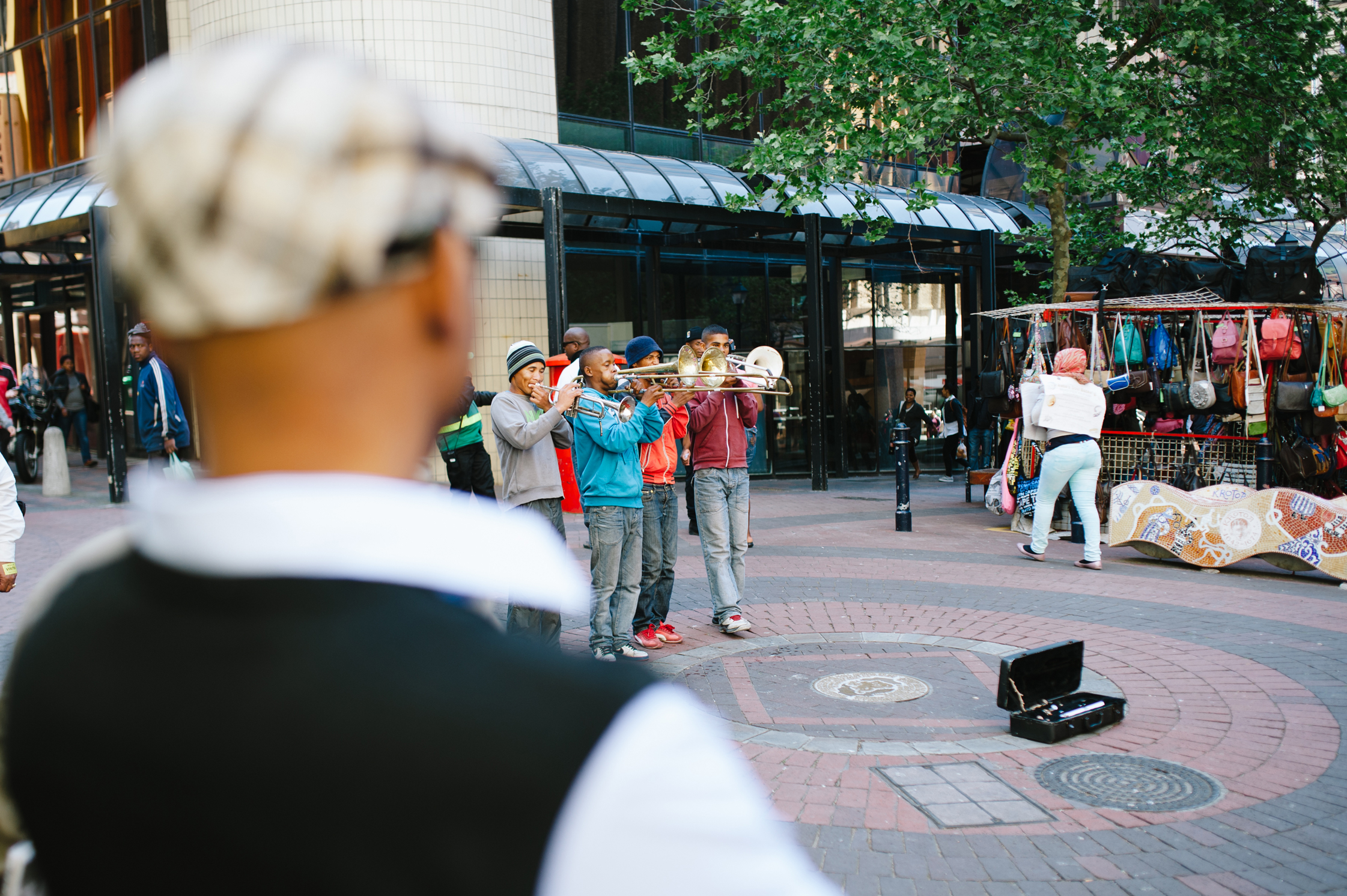
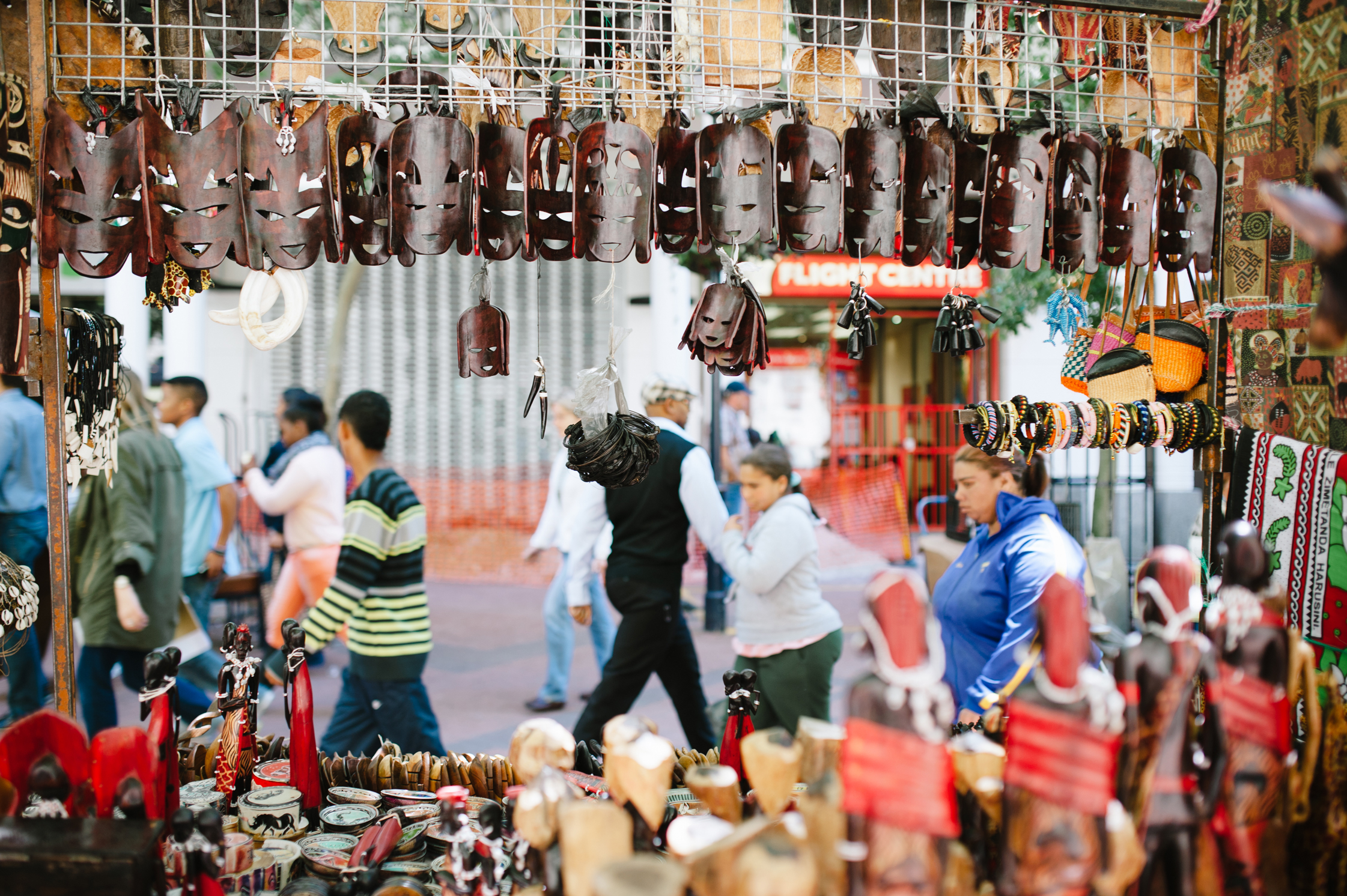
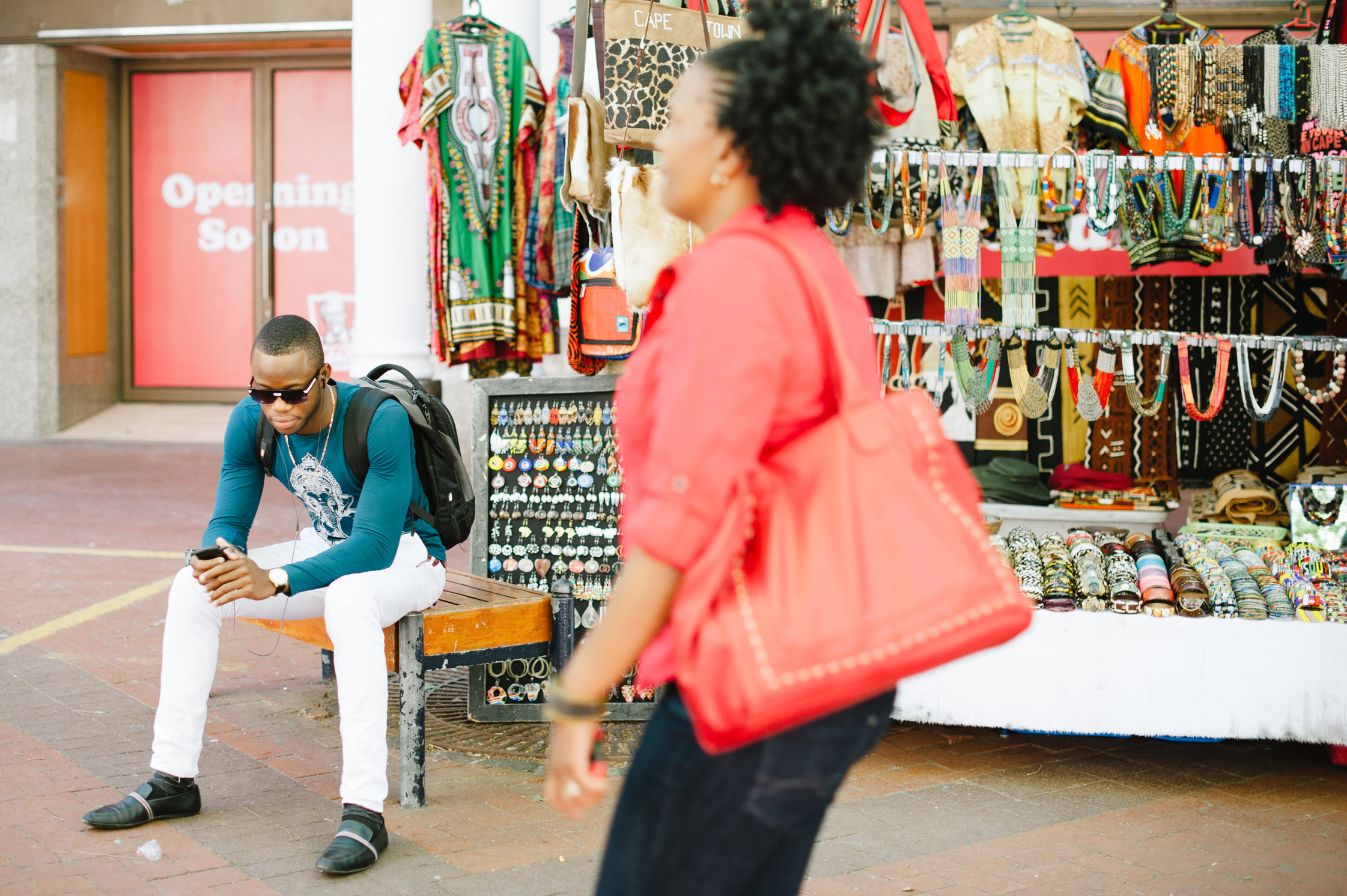
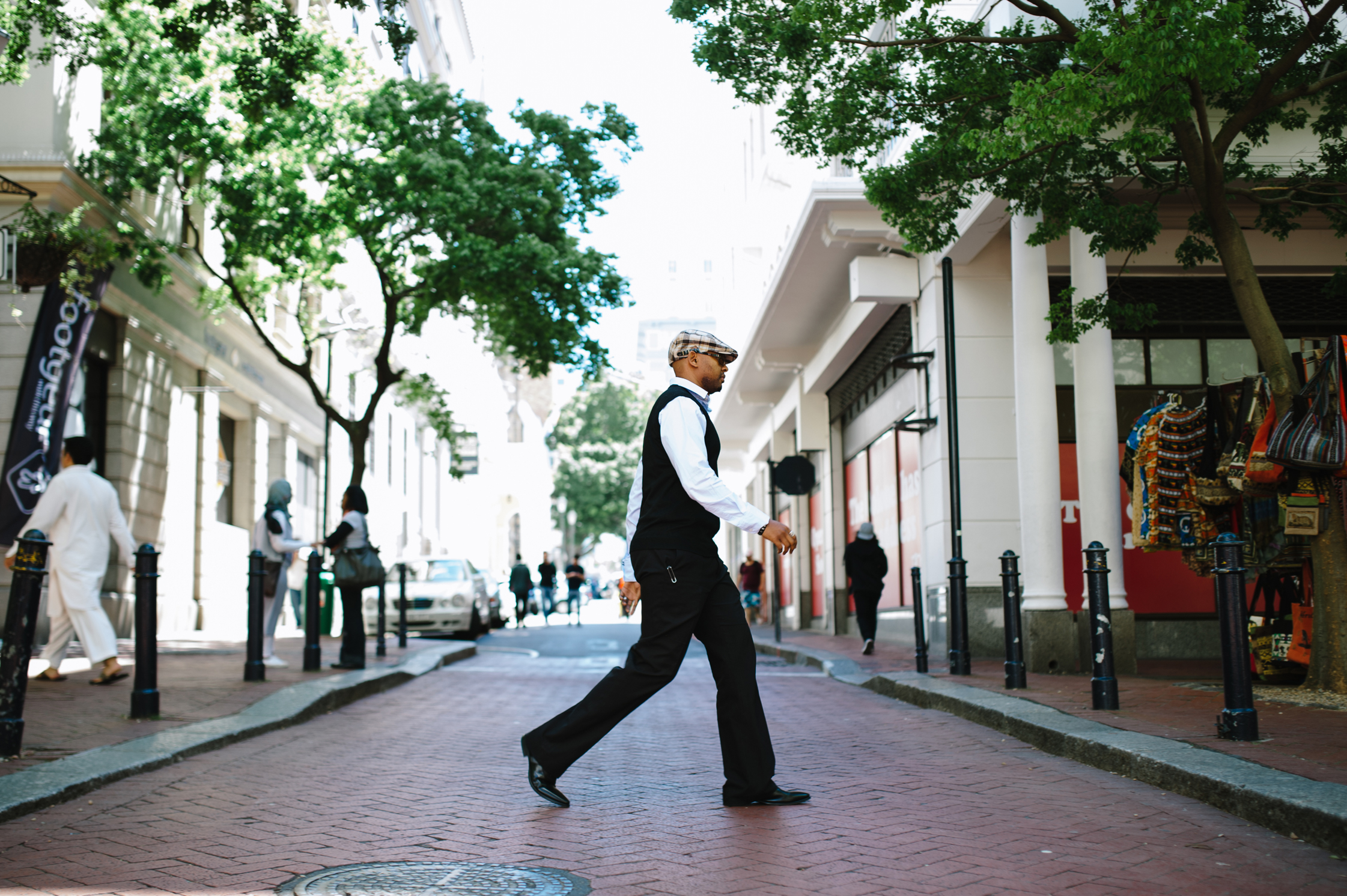
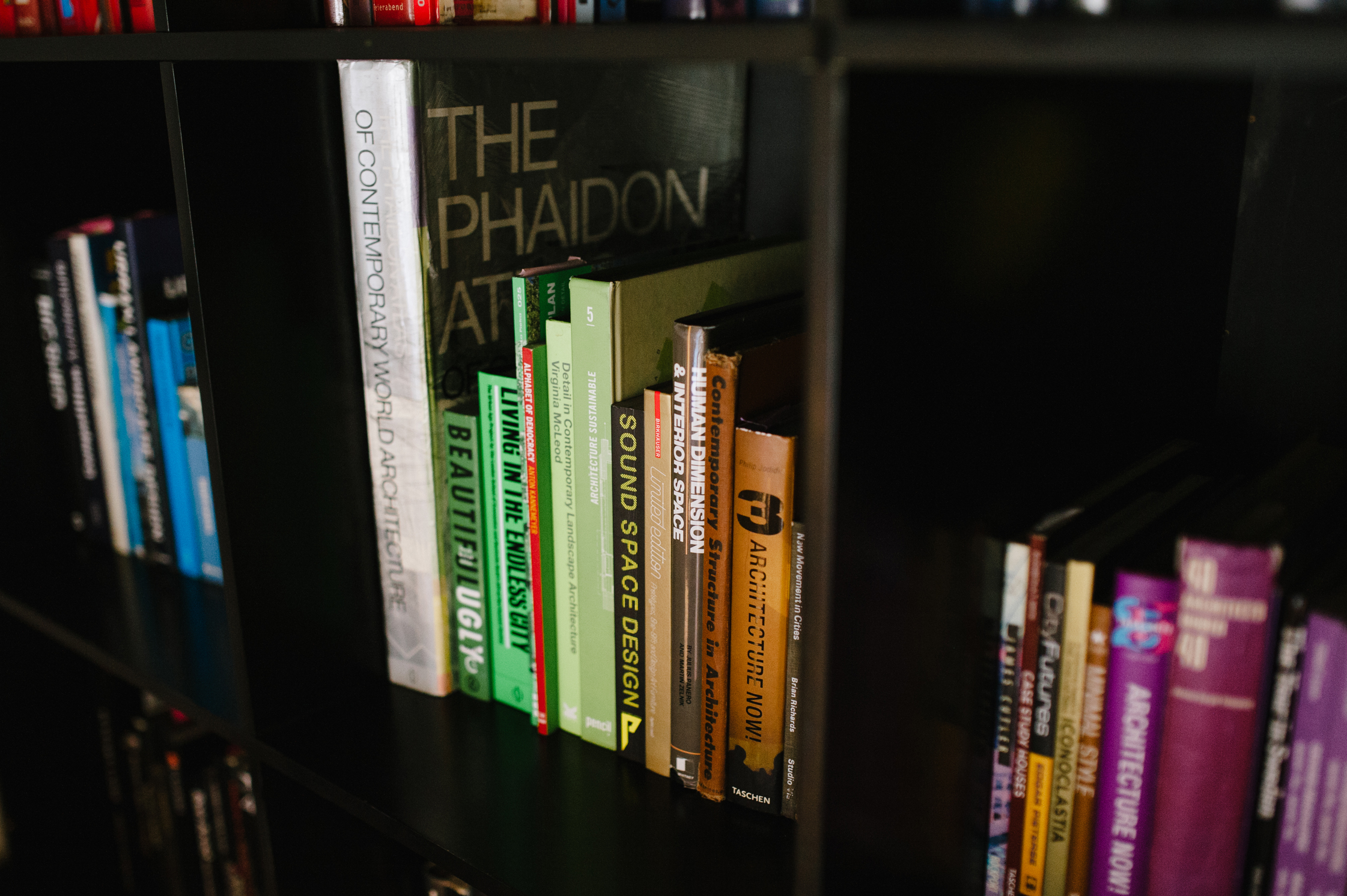

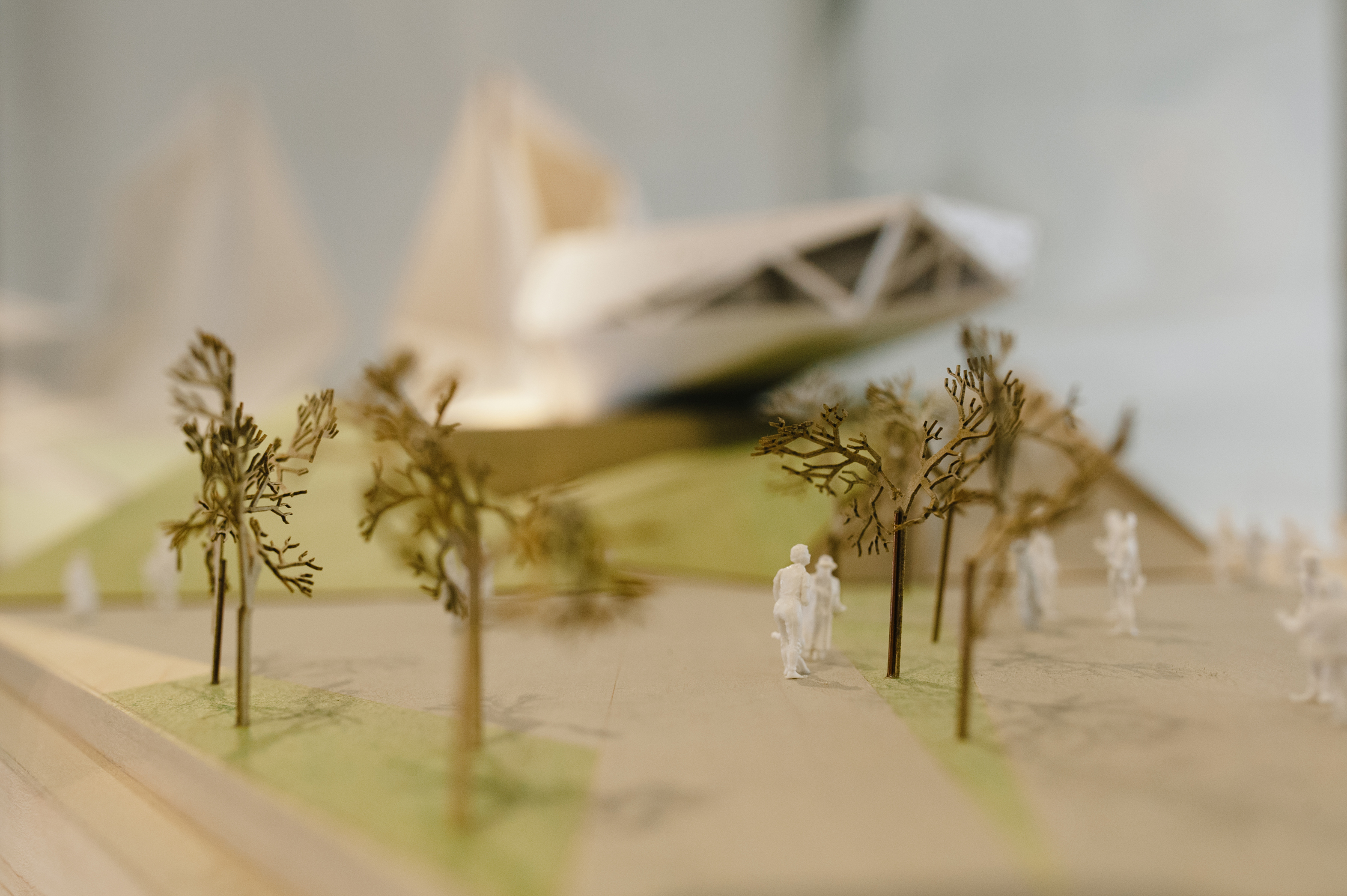
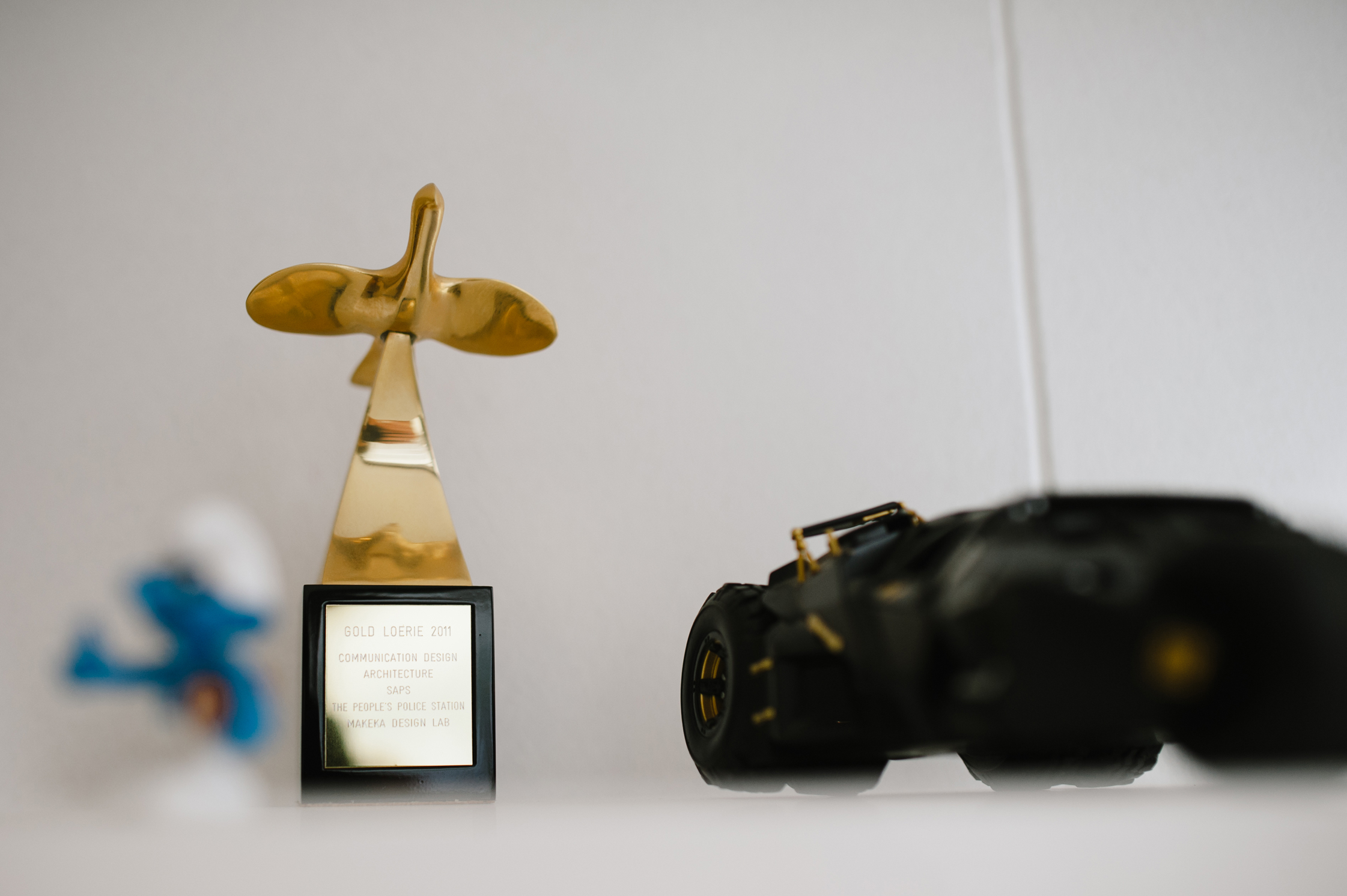
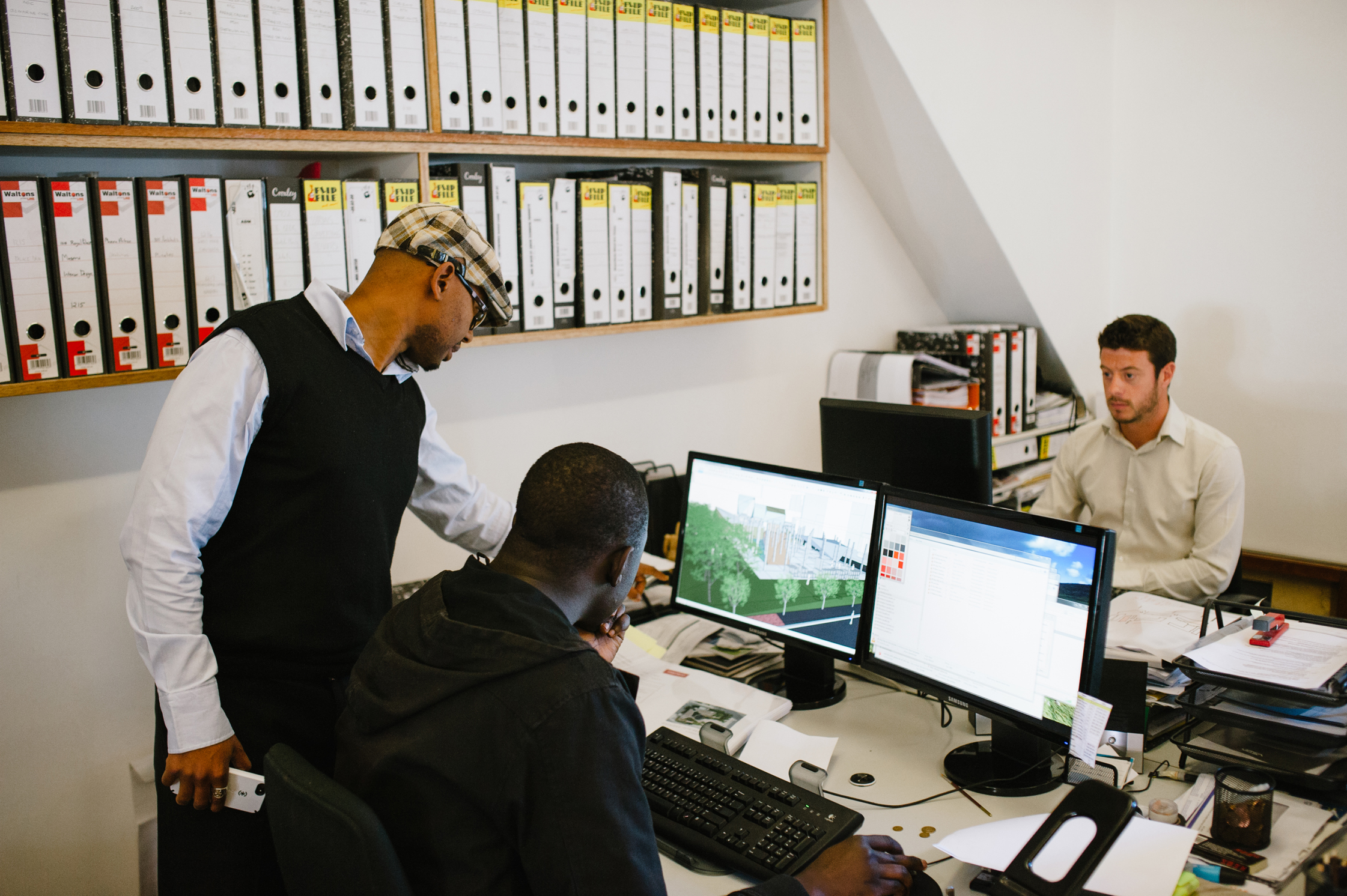
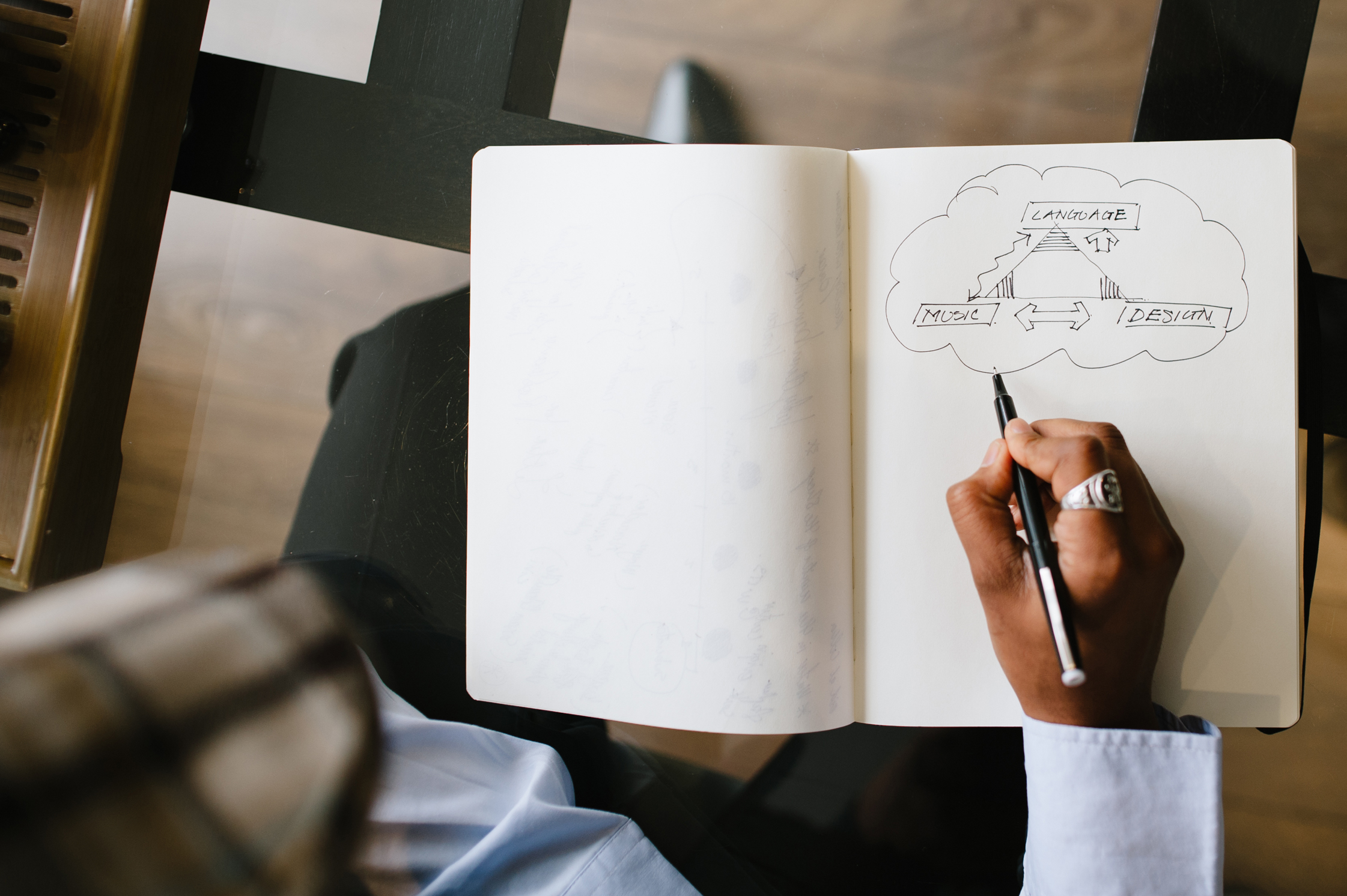
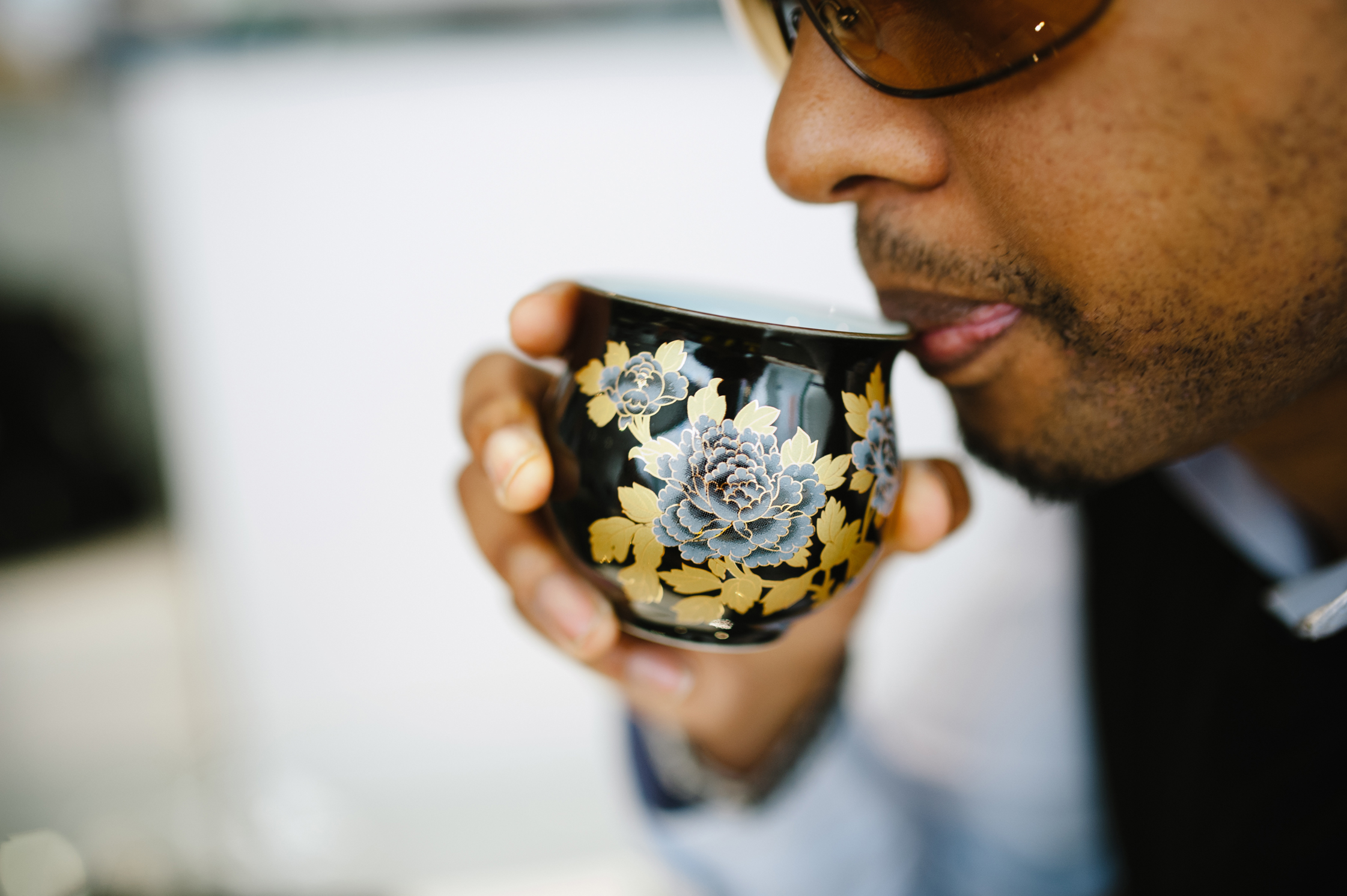
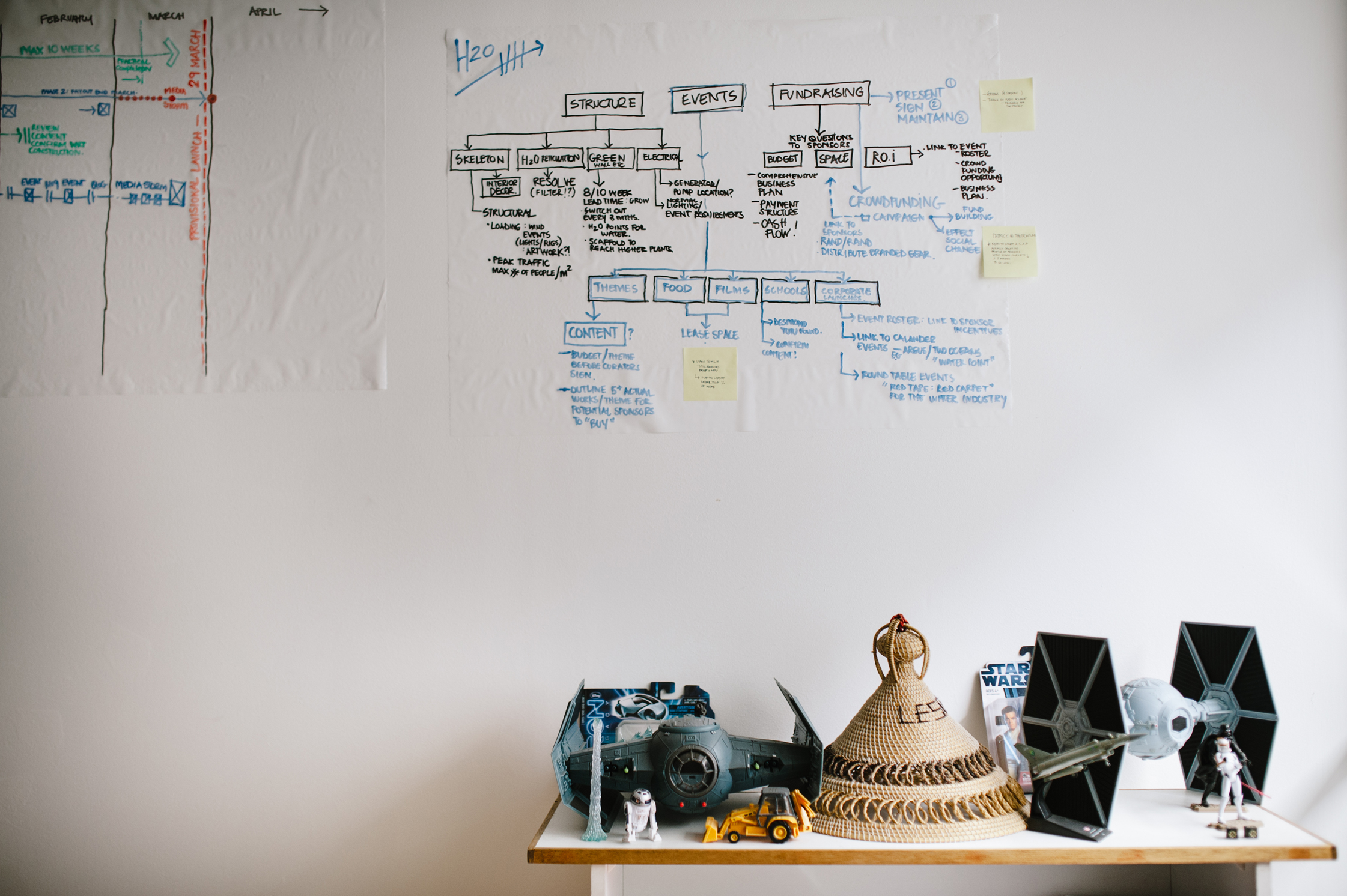
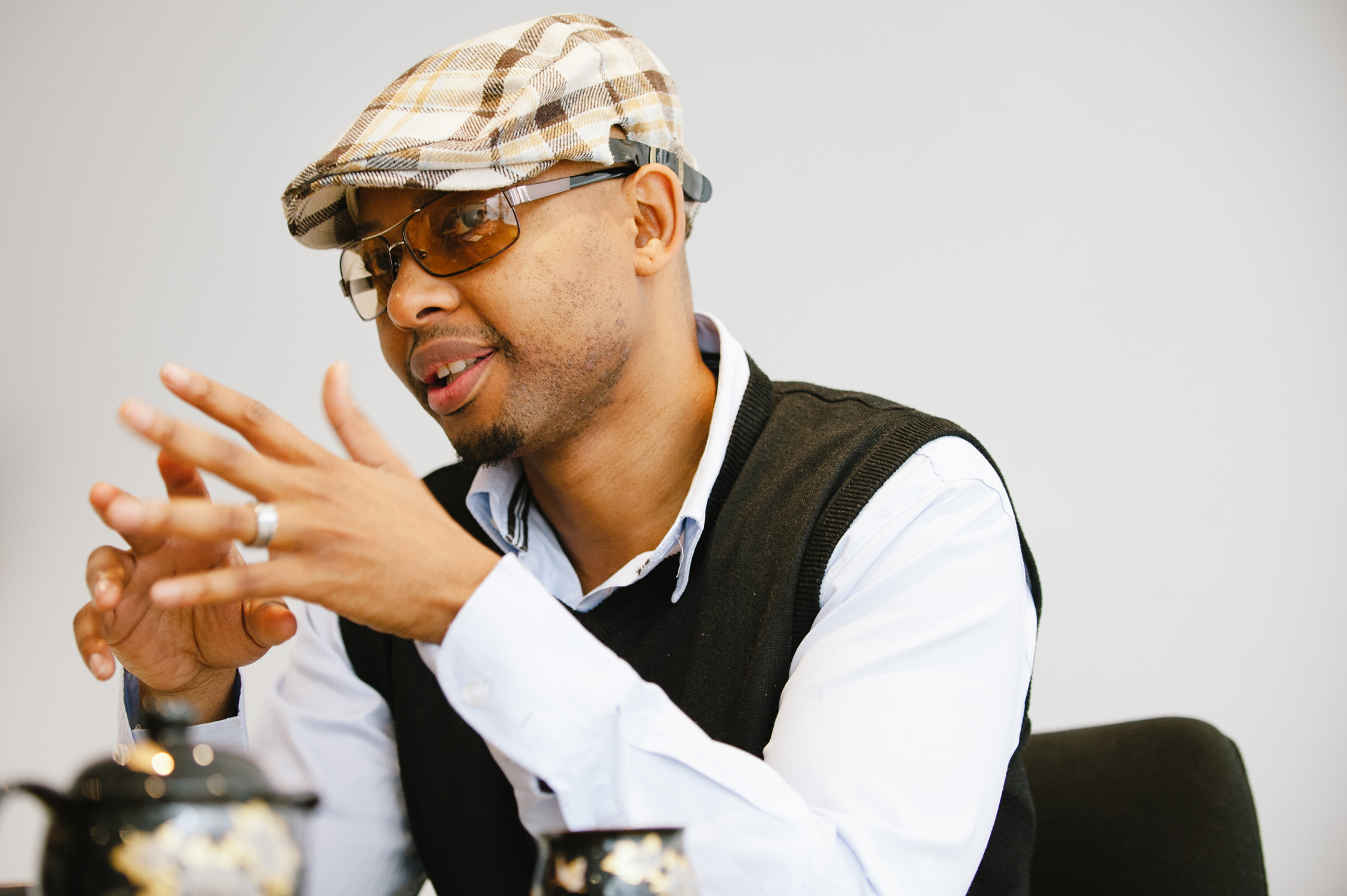
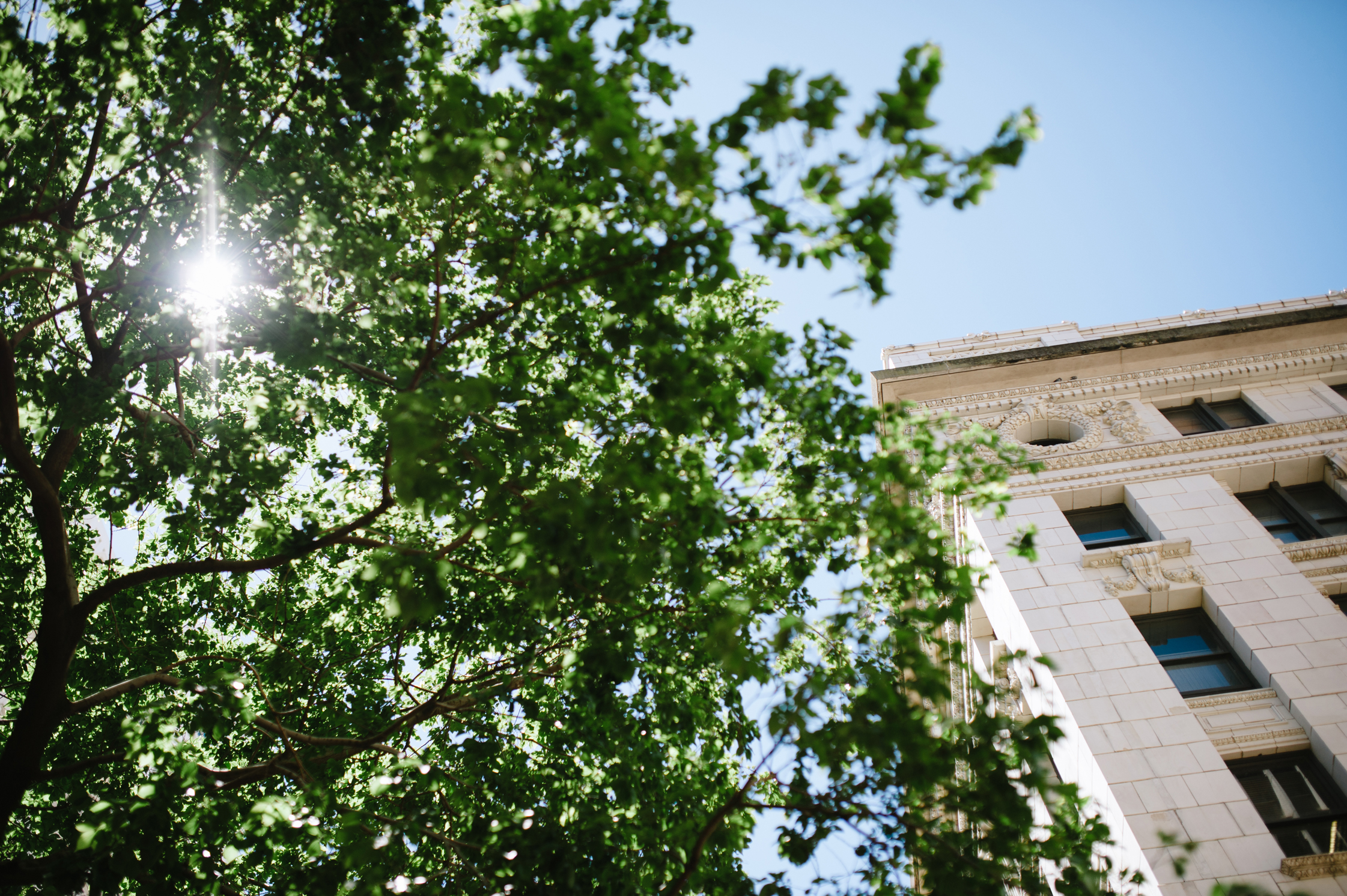
You lived in America for a fair amount of your childhood. Why was this?
My father was an advocate. He was the ambassador for Lesotho to the United Nations. During other periods he was also the ambassador to Mexico and the United States.
What is your mother’s professional background?
My mother is an economist. When we were in the United States – spouses of ambassadors didn’t work – so she kept herself involved and interested by studying and doing a whole range of things. She’s currently been made the high commissioner to England. My parents were both professionals but with a very strong rural background. My father was a sheepherder and became an advocate.
How did your father became an advocate?
Well, he was just a very intelligent man. He managed to get scholarships; eventually he got to Edinburgh where he did his undergrad and his Masters at Columbia University in New York. It was just good old fashioned hard work.
Tell me more about your childhood.
I was born in Matatiele, which is on the border of Lesotho and spent most of my formative years in New York. My experience as a young kid was pretty much the 80s, the Reagan years and my dad being really quite a strong voice in the United Nations working with the non-aligned movement. It was really his job in many respects to try and help bring together the Black African voice in the general assembly. It was a pretty abstract and challenging relationship to Africa and South Africa, and very complicated. There was obviously a little bit of danger, partly because the Apartheid regime banned my dad, and we were under threat. You know they used to kill and maim people all the time, all over the world. In 1987 we came back to Lesotho, I was twelve years old at the time. I went to high school in Maseru and then moved to Cape Town to study.
What are memories from your childhood in New York?
I was not exceptional, just like any child. You enjoy your friends, the setting, going out, having fun. You believe that you’re the same as everyone around you. Sadly I thought I was an American for a long time. People told me that I wasn’t because I had a funny name. In retrospect I do remember a number of instances of constantly being reminded that I didn’t belong. This is before the Barack Obama days – a time where being black was still very much a sort of handicap. And being a black African was even worse. Now it’s a totally different condition, the world is by far much more cosmopolitan and much more mature. however, my experience of New York was often being in fights. Quite frankly, I was quite scrappy. I was the nerd who fought back.
My hair was too curly and obviously my parents weren’t into New York fashion for kids. I was the archetypal African nerd trying to mind his own business and being picked on, if not by white kids on the one hand, but then also being picked on by black American kids. I never quite understood why people were so aggressive with me. It took time to realize it. It wasn’t about me. It was the metaphor of what I was. I was too different.
I am sure tensions were high at home also at this time.
At home there was a lot of tension because of the seriousness of what was happening in South Africa; a sheer level of injustice. South Africa invaded Lesotho in 1982, killed people, did stuff in Botswana, a lot of shenanigans. We have many relatives to this day in various parts of South Africa. The amount of pressure was quite high on my dad to articulate these sort of positions to the United Nations when Ronald Reagan was quite clear that he didn’t want to support the African National Congress (ANC) because it was seen as a terrorist organization, as did Margaret Thatcher.
We had many parties in the house. Only many years later did my mother tell me: “Hugh Masekela used to stay here, he slept on that sofa at this party with so and so.” Because many of the exiles would come to New York, they would pop in. So my mom would throw small parties for these people, trying to give them a sense of Africa because there wasn’t a strong black South African presence in New York as the ANC was still banned. That was also quite weird, being in a house where at any moment people could come in and go out.
What did you love most about your youth in New York?
What was incredibly liberating for me was to be around the birth of hip-hop in the early 80s. That also came out of a condition in New York where black people were trying to find a voice for themselves. It resonated with me also. I loved groups like Sugarhill Gang, Run-D.M.C. and The Fat Boys. I was fascinated with this medium that was progressive and aggressive, yet non violent. The whole principle was to avoid getting physical. Instead you battle verbally. In some ways it was almost like being at debating school or if you imagine being in the Greek or Roman senate, where it’s your wit that sets you apart. For somebody that was always involved in fights, it was a beautiful art form that allowed you to defeat your opponent gracefully.
Did you just listen to hip-hop or did you also make your own music?
My first major experience was the first time I rapped and it was the first time people actually paid attention to me. I remember I was on the bus, and maybe six years old. There were always these kids in the back of the bus free styling. I remember just standing up and I threw a six line verse I made up on the spot and the whole bus went dead quiet. My whole social status in the school changed overnight after delivering that verse. It was quite interesting to see how through creativity you can change your circumstances. I felt powerful and liberated.
Do you still make music?
I was in a group for a long time, we did a lot of recordings and performances but never released an album. I still write and find music very therapeutic. There’s a point at which music is about yourself and if you’re lucky, that resonates with other people. I do it for myself. It’s very disciplined, it’s mathematical, but not about numbers. It’s more about sequence and how you put things together. It’s about timing, it’s about how you breathe, your voice, what you say. When you make music, it’s like being in a cocoon, the whole world is shut out.
Is there a connection in your philosophy between music and architecture?
Yeah, there is. I’ll draw it as a triangle, because I think the love of language is also quite an important thing. Which is what hip-hop is. It involves different ways of playing with language and deconstructing and constructing it. The first thing about architecture is that it has a rhythm, it has an order, it has a structure and can be informed by principles of proportion, symmetry and so on. Music is also like that. Other forms of emerging architecture are a bit more rebellious, a bit more inventive and a bit more playful. And the relationship between that and hip hop, and let’s say jazz is very similar.
Architecture is one of the most complex artforms because architecture happens in time whereas music begins and ends. Music is sequential and has a beginning and an end, whereas architecture has no beginning or end, it is. Music is like a book, it must be read forward. Whereas with architecture you can move through a space, forwards or backwards, it’s always changing, it’s character is consistently shifting. You can design architecture but you can’t really control it. It’s also about how people interact with it. And you work with clients, whereas musicians normally work alone. With architecture with so many different people involved, it’s a bit like being a jazz player and not knowing half of the band and not really controlling what they’re doing, just hoping that they don’t mess up. It’s a very different type of choreography.
When was the first time you came to Cape Town?
In 1994. I came to study at university. There weren’t too many choices in terms of what I wanted to do at that time. I had a scholarship to do electro-mechanical engineering, which was the closest to what I wanted to do – car design – and to hopefully be an astronaut one day. Aeronautical engineering wasn’t offered in the country at the time so the closest to that was electrical mechanical engineering.
Tell us about your career path, you studied engineering and moved over to architecture quite quickly?
I did a year of engineering which was a disaster. I hated it. I don’t think I was ever meant to be an engineer. I was far too creative and more of a designer. On all the projects I was always the chief designer and everybody else did the calculations to achieve my vision. So I only realized many years later, that’s what an architect does in real life also. 1994 was a strange year, a transitional year. I arrived in Cape Town before the elections. There was lots of tension on campus. We were also part of the first major substantial intake of black people on campus. It was quite complicated because the emotions were very raw during that year.
After completing six years of architectural studies I was shortlisted for an international competition to do a museum on Robben Island. It was quite a prestigious thing because it was probably the first time that a student had been shortlisted in a competition, which included professionals. The school encouraged me to take a year off to do the competition, so I deferred my final thesis by a year. Then I decided to study city planning and urban design. I managed to get another scholarship for it, but it wasn’t a full scholarship. They called it part time but I had to be in studio five days a week and no employer would pay me to work afternoons. I literally couldn’t afford to continue studying so I started my own practice whilst I was still doing my Masters and left the course. I have now been in business for ten years.
At a TED conference you were announced as being “passionate about an African design and aesthetic that serves the public and clients, bringing dignity and grace to the built environment.” Did this way of thinking develop throughout the years or has this been your philosophy from the beginning?
My architectural philosophy developed quite early. I could demonstrate it in the competitions I did as a student and that gave me confidence. I was particularly outraged when I began to understand how spaces within cities reinforce prejudice and class distinction. They reinforce how people behave and interact with each other. That’s something you’re not taught, so you don’t really understand that the city that you’re in influences you as much as your parents. Whether you use public transport or not can totally define your experience of the city. When I suddenly realized what was happening here, when I looked at what architecture has done in so many cities around the world, I found it very difficult to ignore this profound sense of injustice. I then realized the diabolical partnership existing between politics and many built environment professionals, particularly planners.
For example, placing railway lines to divide communities. So from the outset I was very clear that through my work I had a chance to reinvent the country. Fixing is a difficult thing but reinvention is possible. So if you’re asked to design a school, you have to ask yourself really deep questions. “What does this school mean to somebody that doesn’t have electricity in their home and they’re asked to do homework? What does it mean if all of the teachers are from different cultural backgrounds and speak with a different accent to the students? What does it mean if you’re not confident in a particular language you’re being instructed in?” For me these are architectural issues. So with every project I was engaged with, it was always a question “How do I make something that begins to address these challenges? How do you help bring dignity to the everyday?” It is not always obvious, however you can certainly differentiate between a place that makes you feel comfortable or uncomfortable. You can certainly create architecture that is exclusionary. When I started there was no condition in this country where I could find architecture that spoke to the majority of the people in terms of their cultural reality.
Does that mean you make buildings that look like huts?
No. Nor does it mean that everything has to be covered in ochre and warm colors because Africans are colorful. I also don’t think you have to decorate spaces with skins and wall mounted horns and so forth. Because I think those things simplify what it means to be African. It becomes a fashion rather than a philosophy. Fashion changes, philosophy is constant. I try to think about how people use architecture and what constitutes a sort of spatial lingua franca, an architecture that allows people of different backgrounds to see beauty in it, to enjoy it and not feel culturally alienated.
When it was confirmed that you would redo the Cape Town station, how did it make you feel?
I was ecstatic. It’s a huge honor. The fact that it was a building, which was celebrated as an icon of separation and that I had an opportunity to potentially transform an icon for integration; it’s an amazing brief. It’s a building that 270,000 people use everyday.
What inspires you?
I’m highly inspired by writing. I love sci-fi movies because in a way it’s like an architectural exercise. You’re imagining alternative societies, alternative ways of doing things, different technologies, different fashions, different codes. In fact, being a sci-fi writer is very much like being an architect, because you’re always hypothesizing a different future. I think we understand that in the future, if we have evolved, there’s an intimate relationship between our environment and our values. I also enjoy sensual experiences. I want buildings to be sensual. So I’m interested in heights of emotions, whether it’s love, hate, anger, or lust.
Is it important for you to separate life and work?
No, I can’t. I tell everybody that being an architect is like being a fireman or policeman. You don’t switch off. When I’m traveling I cannot help but study the place I’m in. Your eyes are constantly looking for patterns in things or things that disrupt patterns. That’s architecture.
You live in the city centre of Cape Town, what do you love about your neighborhood?
I love the fact that I have many choices in close proximity. I can go downstairs and be part of many different worlds simultaneously. I can go to the Pepper Club to do some writing, I can go to Long Street Cafe on a weekend and bump into a whole bunch of people from Johannesburg, I can go across to Neighbourhood and have a totally different sort of vibe. These things are literally all within ten minutes walking distance. So it’s that diversity that makes the city work well for me.
Do you have any holidays planned?
I haven’t had a holiday in five years. I need one. Because of my teaching which allows me to travel I kind of tell myself these are my holidays, but I’m actually working. The next place I would like to visit is Buenos Aires.
Do you collect anything?
I collect model airplanes. I also collect figures, some people call them toys, but they’re models for me. I’ve got the bicycle from Tron over there; I’ve got a genuine Godzilla. I have a couple of Batman pieces. They are interesting to me, not to play with them but the attention to detail.
In your opinion what does Cape Town offer compared to other places?
The natural environment is of course very impressive. The fact that you can be part of the world here, but also jump in the car and be on Table Mountain jogging, that’s quite a gift. Not many cities offer so many different things in such close proximity. Part of Cape Town’s advantage is it’s size. It’s still a small city. You can do a number of things very quickly. In some ways it becomes a community where everybody knows each other. To be honest, Cape Town is just full of surprises. There is always something strange in the newspapers. I think what’s also really amazing about Cape Town is the academic environment. There are some really amazing thinkers here and because of it’s size and ambiance it attracts people who are quite thoughtful. Some of the most amazing conversations I’ve ever had have actually been in this city.
Mokena, thank you so much for such an inspiring conversation and walk through Cape Town. Find out more about Mokena Makeka’s work visit his studio here.
Photography: Desmond Louw & Antonia Heil
Interview & Text: Antonia Heil
